#Culture wars in contemporary America
Text
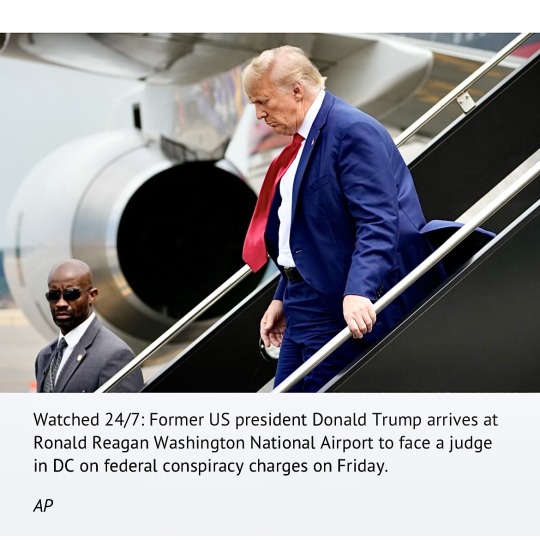
How do you imprison an ex-president with lifetime Secret Service protection?
If Trump is convicted, his Secret Service protection may be an obstacle to his imprisonment.
All former US presidents, including Donald Trump, are provided Secret Service protection for life — technically this entitlement and protocol applies, even if Trump were to be convicted and sentenced to prison or home confinement.
By Spencer S. Hsu, Carol D. Leonnig and Tom Jackman
The Washington Post - August 4, 2023

https://www.washingtonpost.com/dc-md-va/2023/08/04/trump-criminal-cases-prison-secret-service/
This article originally appeared in The Washington Post August 4, 2023. It was republished in Australia by The Sydney Morning Herald and The Age - August 5, 2023:

YouTube video >> Please Explain Podcast - Inside Politics: Is Donald Trump going to jail? [Podcast (televised) 4 August 2023 / 18mins.+35secs.]:
From the newsrooms of The Age and SMH, Please Explain Podcast provides daily insight to the stories that drive the world.
youtube
On Tuesday 1 August 2023 in the Federal District Court in Washington DC, special counsel Jack Smith filed an indictment against former US president Donald Trump, for his role in the violent aftermath of the 2020 US election.
Trump faces four criminal charges related to alleged conspiracies to overturn the results of the 2020 election and obstruct the process of certification of those results on January 6 2021, the day of the violent Capitol riot.
If convicted, Trump could potentially go to jail for decades.
Please Explain Podcast host Jacqueline Maley talks with North America correspondent Farrah Tomazin and international editor Peter Hatcher on the latest charges against Donald Trump.

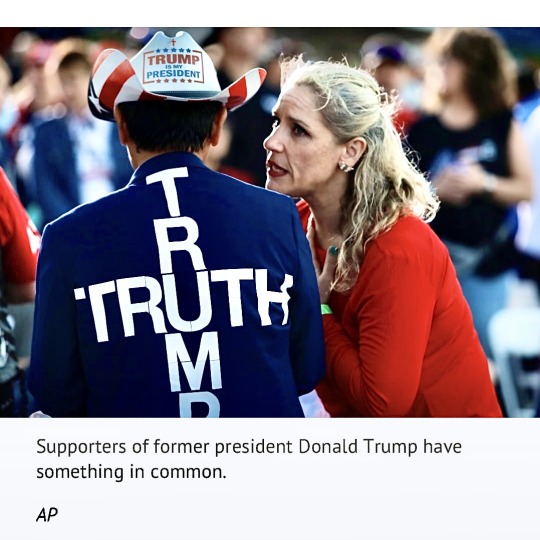

Try looking at the Trump legal saga without congratulating yourself.
How the Modern Meritocracy made Trump inevitable.
By David Brooks
This article originally appeared in The New York Times August 2, 2023. It was republished in Australia by The Sydney Morning Herald and The Age - August 7, 2023:
#Youtube#World politics#US politics#Donald Trump#Donald Trump faces Federal conspiracy charges#US Secret Service protection of ex-president Donald Trump#US special counsel Jack Smith#‘Please Explain Podcast’ host Jacqueline Maley#North America correspondent Farrah Tomazin#International news editor Peter Hatcher#Cartoon by Matt Golding#Democracy#Democracy vs. authoritarianism#Partisan politics in contemporary America#Class warfare & political polarisation in contemporary America#Culture wars in contemporary America
1 note
·
View note
Note
i only learned recently from a friend's who much more comic literate than I that magneto's backstory as an Auschwitz survivor wasnt planned from the start, which surprised me since it seemed to me a really integral part of his character. anyway, twofold question: how common is it to see capes with backstories tied to very specific historical events, and, as time inevitably passes and real world survivors of those events pass, how do they justify having their characters still alive and kicking? (stay safe on your mountaintop friend)
Depending on how wide you cast the net, this is a pretty big list! There are a lot of comics who's characters cutting-edge ripped-from-the-headlines origin later became a very specific historical event, or at least Of A Specific Moment, in a way the writers had no reason to anticipate the franchise would run long enough to have happen. But to shed pedantry and hone in on some specific ones;
The big one, of course, is Captain America. Superficially Cap's contemporary origin comes with a baked-in means of him making it to the present day- he gets stuck in the ice and then gets unthawed. The fly in the ointment, though, is when he unthaws. When they first brought him back into rotation in 1964, his stint in the ice was only around 20 years; long enough for there to be a significant culture shock, but not long enough that his entire social circle was dead or even culturally sidelined. Nick Fury is still around and kicking ass as a zeitgeist-appropriate 60s superspy. But the further the sliding timeline hauls forward his implicit date of release, the more it changes the tone and tenor of the resulting story. Losing twenty years is different from losing fifty years (as was the case in The Ultimates, where he very explicitly comes back during the Bush years as part of the book's commentary on The War On Terror) and those will both be way different from when we inevitably hit the point where he's lost 100 years and he's the cultural equivalent of a Civil War Vet or something. There's strength to all of those stories but they're undeniably different.
Iron Man's origin was originally explicitly tied to the Vietnam war; he was captured by a detachment of "Red Guerillas" while consulting for the US military and the South Vietnamese government. Unfortunately U.S. foreign policy to this day has prevented this from ever becoming an unresolvable storytelling issue.
The Fantastic Four are a case where their origin was intimately tied to the space race; their untested, cutcorner spaceflight was expressly an attempt to show up the Russians. The extremely specific political context of their test flight is something that sort of gets brushed off; the Ultimate incarnation (written by Warren Ellis) threaded this needle deftly by having the accident be a dimensional expedition instead, circa the early 2000s. I'm not actually sure how the urgency of their test flight is currently contextualized in 616 continuity. Anyone got their finger on that pulse?
The Punisher was also originally a Vietnam vet- but through the jaded cynical lens of the 1980s rather than the straightforwardly peppy and jingoistic lens that defined Iron Man's debut in the 60s. Current continuities I believe have mostly bitten the bullet and updated his origin to the invasion of Afghanistan. However, an interesting decision in the Garth Ennis-spearheaded Punisher MAX continuity of the early 2000s- where Punisher is literally the only costumed vigilante- is that they bit the bullet and posited a version of Frank Castle who really has been killing criminals nonstop since shortly after his return from Vietnam in the 70s, a man well into his 60s who's survivability and efficacy at killing are edging up against the boundaries of magical realism.
Hulk I feel sort of deserves a mention here- he's in a sort of twilight zone on this issue, as there was, uh, a pretty goddamn specific political context in which the Army was having him make them a new kind of bomb, but you can haul that forward in the timeline without complete destruction of suspension of disbelief. Pretty soon it'll be downright topical again.
To circle back around to The X-Men, Claremont introduced a lot of historical specificity with the ANAD lineup. Off the top of my head, Colossus was explicitly a USSR partisan (updated to a gangster forced into crime to survive in the mismanaged chaos of the USSR's collapse in the Ultimate Universe) and Storm was orphaned by a French bombing during the Suez War. More to the point, the timing was such that Magneto, in his upper-middle age, had a pretty strongly defined timeline vis a vis his ideological development vs Xavier; child during the holocaust, Nazi hunter who eventually rifts with Xavier during the mid-to-late 60s, and then the two of them spend their years marshalling their respective resources before coming to blows during the quote-unquote "Age of Heroes," whatever the timeline looked like for that in the 80s. And it was a timeline that held together pretty damn well in the 80s, but it's gotten increasingly awkward as time's gone on. The Fox films completely gave up on having it make sense, near as I can tell. In the comics they've had all sorts of de-aging chicanery occur that very pointedly ignores what an odd timeline that implies for everyone else in the X-books besides Magneto. The Cullen Bunn Magneto standalone from 2014-15 I remember actually leaned into playing up the idea that he's just old as shit and dependent on so many superscience treatments to remain functional that he's basically pickled, which was a take I liked; the comic ended when he died of exertion trying to stop two planets from crashing into each other, right before a brand-wide universal reset. When the MCU was at it's peak and people were wargaming how to integrate the X-Men (lol) you occasionally saw people float "fixes" for the issue, such as making Magneto a survivor of the Bosnian Genocide, or making him black and a survivor of the Rwandan genocide; I remember that this consistently drew a lot of ire from people who (reasonably) thought that his Judaism and connection to the holocaust were deeply important to his character, continuity be damned. But yeah, he's a character dogged by specificity in a way only Cap even slightly approaches. If this is a tractable problem I'm not going to be the one to tract it.
Interestingly, I'm genuinely having a lot of trouble coming up with stuff that's analogous to this at DC comics- almost universally the core roster updates into any given time period much more smoothly. Furthermore, DC stuff has always been much more willing to eschew Marvel's World-Outside-Your-Window philosophy in favor of deliberately obfuscating the time period via the Dark-Deco aesthetic of BTAS's Gotham or the retrofuturism of STAS's Metropolis.
The closest you get to this kind of friction is The Justice Society, who, pre-crisis, were siloed off in a universe where superheroes had existed since the 40s and there was no comic book time, so they were all in their upper-middle-age to old age now, with their kids and grandkids as legacy capes. Post crisis they were (and are) kind of an awkward fit in DC continuity; in the scant few JSA comics from the 90s and early oughts that I read, surviving members of the WW2-era lineup like Alan Scott and Jay Garrick were absolutely written as dependent on their metahuman physiques to have endured up to the present day. I think they're still doing stuff with those guys. I don't know how. I do understand the impulse, though. I also never throw anything out.
#thoughts#ask#asks#superheroes#a lot of this is just pure memory tbc#so some of this might be off in some direction or another#magneto#marvel
196 notes
·
View notes
Text

Ancient Roman Wall Used to Trap Spartacus Found in Italy
A team of archaeologists has found the remains of a Roman-constructed wall in Calabria, southern Italy. It was built with the purpose of trapping Spartacus, the former Roman gladiator who escaped and led a slave revolt.
The researchers behind this find, led by Dr. Paolo Visona, a classical archaeologist from the University of Kentucky in the United States, found the structure in the mountainous region of Calabria, where Spartacus and his men fled in 71 BC in order to escape Sicily.
Walls such as this one were constructed under the orders of the Roman general Marcus Licinius Crassus, who was in charge of the Roman legions. Crassus’ mission was to capture or murder Spartacus and his band of freed slaves and former gladiators.
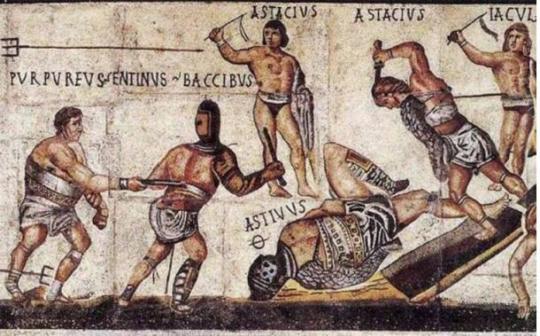
Roman wall trapped Spartacus, a slave leader
The ancient wall dissects an area of the Dossone della Melia forest in the Calabria region right on the southern tip of Italy. The excavated stone wall and supporting earthwork was roughly 1.7 miles long and is mostly in good condition.
Archaeologists also uncovered a Roman defensive ditch known as a fossa as well as the remains of what seemed to have been an embankment system.
“The wall has now been conclusively identified as part of the structures built by the Roman general Marcus Licinius Crassus to contain the slave revolt leader Spartacus and his forces,” the Archaeological Institute of America said in a statement announcing the discovery.

Mostly covered by vegetation with only small sections visible to the eye, the remains of the Roman wall were not prominently on display. However, a group of environmental workers came across parts of the stone wall while hiking through the forest, and believing it to be something ancient, they notified local cultural authorities.
Researchers and archaeologists analyzed the structure after some time. They used ground-penetrating radar and LiDAR aerial survey equipment to find out more about the semi-buried wall’s construction. They also extracted soil samples and took magnetometer readings in an effort to learn more about when the wall was built.
Historical accounts of Spartacus’ life come primarily from Plutarch and Appian, who both penned their works more than a hundred years after his death. Plutarch’s Life of Crassus and Appian’s Civil Wars provide the most thorough account of the slave revolt.
Although he was a major character in Roman history, no contemporary sources exist, and all accounts were written by people who were only indirectly involved. There have been no testimonies from the slaves of eyewitnesses.
Very little is known about Spartacus besides the events of the war, and extant accounts are full of contradictions.
By Matthew Norman.
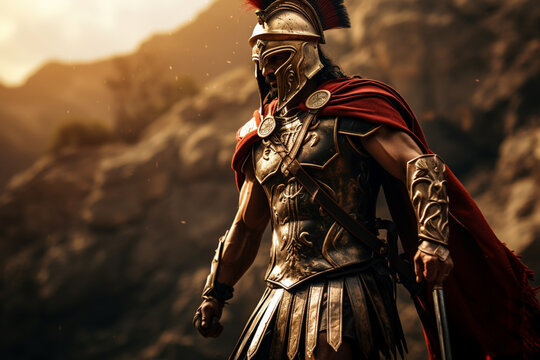
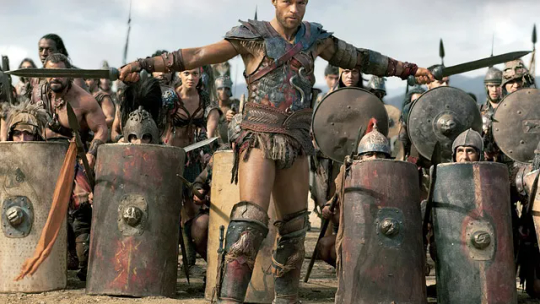
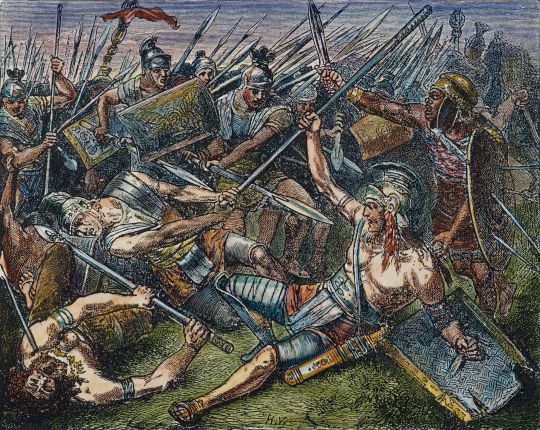
#Ancient Roman Wall Used to Trap Spartacus Found in Italy#Calabria Italy#Dossone della Melia forest#Spartacus#Roman general Marcus Licinius Crassus#Roman defensive ditch known as a foss#ancient artifacts#archeology#archeolgst#history#history news#ancient history#ancient culture#ancient civilizations#roman history#roman empire
150 notes
·
View notes
Text
How to Stop Fascism
Five Lessons of the Nazi Takeover
Timothy Snyder
Jul 05, 2024
As the United States hovers at the edge of fascism, the history of Germany can help.
To be sure, Americans have other histories to ponder, including their own. Some American states, right now, are laboratories of authoritarian rule (and resistance). The American 1860s and American 1930s reveal tactics authoritarians use, as well as the weaknesses of the American system, such as slavery and its legacy. At those times, though, Americans were lucky in their leadership. Lincoln and Roosevelt were in office at the critical moments. And so we lack the experience of the collapse of the republic.
We can certainly learn from contemporary authoritarian success, as in Russia and in Hungary, which I have written about elsewhere. Yet the classic example of a major economic and cultural power collapsing into fascism remains Germany in 1933. The failure of the democratic experiment in Germany led to a world war as well as the Holocaust and other atrocities.
Yet today a taboo hovers around anything concerning Hitler. As soon as the collapse of the German republic in 1933 is evoked, American voices commence a fake lament — America is uniquely good so nothing about Nazis can ever apply, and/or Hitler was uniquely evil and so nothing concerning him is relevant.
To be sure, every person and every event is in some sense unique. But history is precisely the interaction of individuals and situations which, seen in isolation, will appear unique. The taboo on fascist history shoves people back to a turbulent present, leaving them feeling more helpless. It is an element of the fascist takeover.
The lessons from Germany that I present below are not at all new. We have been trained by digital media to believe that only what happens right now matters. But the people who intend to destroy the American constitutional republic have learned from the past. One of the basic elements of Project 2025, for example, is what the Nazis called Gleichschaltung: transforming the civil service into a fascist nest.
Those who wish to preserve the American constitutional republic should also recall the past. A good start would be just to recall the five basic political lessons of 1933.
1. Voting matters. Hitler came to power after an election which enabled his appointment as head of government. It is much easier for fascists to begin from within than to begin from without. Hitler’s earlier coup attempt failed. But once he had legitimate power, inside the system as chancellor (prime minister), he could manipulate it from within. In the American system, “voting” means not just going to the polls yourself, but making donations, phone-banking, and knocking on doors. We are still, happily, at the stage when unglamorous actions can make the difference.
2. Coalitions are necessary. In 1932, in the crucial German election, the far left and the center left were separated. The reasons for this were very specific: Stalin ordered the German communists to oppose the German social democrats, thereby helping Hitler to power. To be sure, the American political spectrum is very different, as are the times. Yet the general lesson does suggest itself: the left has to hold together with the the center-left, and their energies have to be directed at the goal rather than at each other.
3. Conservatives should be conservative. Which way the center-right turns can be decisive. In Germany in 1932, conservatives enabled the counter-revolution. They did not see Hitler and his Nazis as something different from themselves. They imagined, somehow, that Hitler would preserve the system rather revolutionize it. They were wrong, and some of them paid for the mistake with their lives. As in American today, the German “old right” was less numerous than the “new right,” the fascists. But how the traditionalist center-right acts can very well make the difference.
4. Big business should support democracy. In the Germany of the 1930s, business leaders were not necessarily enthusiastic about Hitler as a person. But they associated democracy with labor unions and wanted to break them. Seeing Hitler as an instrument of their own profit, business leaders enabled the Nazi regime. This was, in the end, very bad for business. Although the circumstances today are different, the general lesson is the same: whether they like it or not, business leaders bear responsibility for whether a republic endures or is destroyed.
5. Citizens should not obey in advance. Much of fascism is a bluff — look at our loyal cult, listen to our outrageous language, heed our threats of violence, we are inevitable! Hitler was good at that sort of propaganda. Yet to gain power he needed luck and the errors of others. American fascism, likewise, is far from inevitable. It too is largely bluff, most of it digital. The internet is much more fascist than real life, which is discouraging. But we vote in the real world. The crucial thing is the individual decision to act, along with others, for four months, a little something each day, regardless of the atmospherics and the polls and the media and the moods.
It’s simple: recalling history, we act in the present, for a future that can and will be much better.
58 notes
·
View notes
Note
im an undergrad student who was thinking about specializing in studying fascist movements in North America for my masters and ive really enjoyed reading your book commentary - you connect things that I'm not always aware of in ways that are really comprehensive and appreciate
Do you know of any researchers who are moving things on the topic right now (most of the books ive read are around 20+ years old, unfortunately)?
(sorry if any of this is unclear/grammatically incorrect/weirdly worded - I'm super sick rn)
thank you! I'm really glad to hear that :)
For contemporary writing, I'm currently working through some of Alberto Toscano's work - he has a really interesting article from 2021 on fascism from a Black radical/Marxist perspective where he summarizes various historical analyses of fascism from Black (particularly US) thinkers and activists. One thing I especially appreciate is that he complicates Aime Cesaire's formulation of fascism (i.e., "european colonialism come home") as incomplete when applied to settler colonial contexts, especially the United States - one of Cesaire's articulations of fascism is that (to paraphrase) "one fine day, the prisons begin to fill up, the Gestapo gets busy" and so on, and Toscano, working through Angela Davis and George Jackson, responds with (again I'm paraphrasing) "the prisons are already full! The Gestapo is already here!" etc. Toscano also has a new book that just came out in 2023 called Late Fascism, which explicitly addresses the current moment. I only have a physical copy of that so I can't share a pdf unfortunately, and I still need to get around to reading it lol.
These are also a couple random articles I found insightful:
Carnut (2022). Marxist Critical Systematic Review on Neo-Fascism and International Capital: Diffuse Networks, Capitalist Decadence and Culture War - does what it says on the tin
Daggett (2018). Petro-masculinity: Fossil Fuels and Authoritarian Desire - talks about car culture as a site of modern reactionary political movements, links climate denialism with (proto-)fascist movements
Parmigiani (2021). Magic and politics: Conspirituality and COVID-19 - this one does not mention fascism explicitly, but imo the intersection between new age spirituality, anti-vaccine sentiment, and qanon/q-adjacent conspiracies are pretty important to understanding contemporary fascist social movements, so I'd still recommend reading this
Finally, this isn't an article but I found this recorded lecture about the history of Qanon pretty interesting. I don't think the author gives particularly insightful answers on how to solve the problem of far right conspiracies in the Q&A portion but I found it to be a helpful summary
Otherwise I've been focusing a lot on decolonial scholarship more so than fascist scholarship - this is again guided by Cesaire's argument that Europe/The West broadly is inherently fascist. These works aren't contemporary, but you can look at this post for some of the readings I linked on decolonial scholarship if you want to go that route. Those are serving me more for theoretical frameworks to guide contemporary analysis, not analysis of contemporary events directly
also idk if I need to put this disclaimer, but just in case this leaves my blog: this isn't a full throated defense of/apology for everything in these articles, I'm not claiming they're sufficient to understanding the present moment, these are just some of the things I've been reading recently and have found helpful in some way or another. a lot of contemporary work I have read (much of which isn't linked here because I don't think its very good/do not have it on hand) focuses on populism and authoritarianism as central analytical terminology, which i think does a lot of work to exceptionalize and mystify fascism as a historical and political process/project originating from European colonialism & Western imperialism, but these terms are endemic to the field so you have to contend with them no matter what
good luck with your studies!
59 notes
·
View notes
Text
books and articles about about comics, superheroes, dc and batman
books
Ahrens, J., & Meteling, A. (Eds.). (2010). Comics and the City: Urban Space in Print, Picture and Sequence. A&C Black.
Bongco, M. (2014). Reading comics: Language, culture, and the concept of the superhero in comic books. Routledge.
Brode, D. (Ed.). (2022). The DC Comics Universe: Critical Essays. McFarland.
Brooker, W. (2013). Batman unmasked: Analyzing a cultural icon. Bloomsbury Publishing USA.
Burke, L., Gordon, I., & Ndalianis, A. (Eds.). (2020). The superhero symbol: media, culture, and politics. Rutgers University Press.
Dittmer, J., & Bos, D. (2019). Popular culture, geopolitics, and identity. Rowman & Littlefield.
DiPaolo, M. (2014). War, politics and superheroes: Ethics and propaganda in comics and film. McFarland.
Dyer, B. (Ed.). (2009). Supervillains and Philosophy: sometimes, evil is its own reward (Vol. 42). Open Court Publishing.
Geaman, K. L. (Ed.). (2015). Dick Grayson, boy wonder: Scholars and creators on 75 years of Robin, Nightwing and Batman. McFarland.
Giddens, T. (Ed.). (2015). Graphic justice: Intersections of comics and law. Routledge.
Heer, J., & Worcester, K. (Eds.). (2009). A comics studies reader. Univ. Press of Mississippi.
Irwin, W. (2009). Batman and philosophy: The dark knight of the soul. John Wiley & Sons.
Langley, T. (2022). Batman and psychology: A dark and stormy knight. Turner Publishing Company.
McKittrick, C. (2015). Fan phenomena: Batman, edited by Liam Burke.
Ndalianis, A. (Ed.). (2009). The contemporary comic book superhero (Vol. 19). Routledge.
O'Connor, L. R. (2021). Robin and the Making of American Adolescence. Rutgers University Press.
O'Neil, D., & Wilson, L. (Eds.). (2008). Batman Unauthorized: Vigilantes, Jokers, and Heroes in Gotham City. BenBella Books.
Packer, S., & Fredrick, D. R. (Eds.). (2020). Welcome to Arkham Asylum: Essays on Psychiatry and the Gotham City Institution. McFarland.
Pearson, R., & Uricchio, W. (Eds.). (2023). The many lives of the Batman: Critical approaches to a superhero and his media. Taylor & Francis.
Pearson, R., Uricchio, W., & Brooker, W. (Eds.). (2017). Many more lives of The Batman. Bloomsbury Publishing.
Picariello, D. K. (Ed.). (2019). Politics in Gotham: the Batman universe and political thought. Springer.
Pustz, M. (Ed.). (2012). Comic books and American cultural history: An anthology. Bloomsbury Publishing USA.
Romagnoli, A. S., & Pagnucci, G. S. (2013). Enter the superheroes: American values, culture, and the canon of superhero literature. Scarecrow Press.
Smith, M. J., & Duncan, R. (Eds.). (2012). Critical approaches to comics: Theories and methods. Routledge.
Smith, M. J., Brown, M., & Duncan, R. (Eds.). (2019). More critical approaches to comics: theories and methods. Routledge.
Weiner, R. G. (Ed.). (2009). Captain America and the struggle of the superhero: Critical essays. McFarland.
Weldon, G. (2017). The caped crusade: Batman and the rise of nerd culture. Simon and Schuster.
White, M. D. (2019). Batman and ethics. John Wiley & Sons.
Worcester, K., Heer, J., & Hatfield, C. (Eds.). (2013). The Superhero Reader. University Press of Mississippi.
articles
Authers, B. (2012). What Had Been Many Became One: Continuity, the Common Law, and Crisis on Infinite Earths. Law Text Culture, 16, i.
Austin, S. (2015). Batman's female foes: the gender war in Gotham City. Journal of Popular Culture (Boston), 48(2), 285-295.
Avery, C. (2023). Paternalism, performative masculinity and the post-9/11 cowboy in Christopher Nolan’s Dark Knight trilogy. The Australasian Journal of Popular Culture, 12(1), 65-81.
Bainbridge, J. (2007). “This is the Authority. This Planet is Under Our Protection”—An Exegesis of Superheroes' Interrogations of Law. Law, Culture and the Humanities, 3(3), 455-476.
Best, M. (2005). Domesticity, homosociality, and male power in superhero comics of the 1950s. Iowa Journal of Cultural Studies, 6(1).
Brienza, C. (2010). Producing comics culture: a sociological approach to the study of comics. Journal of Graphic Novels and Comics, 1(2), 105-119.
Camp, L. D. (2017). ‘Time to ride the monster train’: multiplicity, the Midnighter and the threat to hegemonic superhero masculinity. Journal of Graphic Novels and Comics, 8(5), 464-479.
Camp, L. D. (2018). "Be of Knightly Countenance": Masculine Violence and Managing Affect in Late Medieval Alliterative Poetry and Batman: Under The Red Hood (Doctoral dissertation, University of South Carolina).
Cocca, C. (2014). Negotiating the third wave of feminism in Wonder Woman. PS: Political Science & Politics, 47(1), 98-103.
Coogan, P. (2018). Wonder Woman: superheroine, not superhero. Journal of Graphic Novels and Comics, 9(6), 566-580.
Cohn, N., Hacımusaoğlu, I., & Klomberg, B. (2023). The framing of subjectivity: Point-of-view in a cross-cultural analysis of comics. Journal of Graphic Novels and Comics, 14(3), 336-350.
Costello, M. J., & Worcester, K. (2014). The politics of the superhero: Introduction. PS: Political Science & Politics, 47(1), 85-89.
Crutcher, P. A. (2011). Complexity in the comic and graphic novel medium: Inquiry through bestselling Batman stories. The Journal of Popular Culture, 44(1), 53-72.
Curtis, N. (2013). Superheroes and the contradiction of sovereignty. Journal of Graphic Novels and Comics, 4(2), 209-222.
Fennell, J. (2012). The aesthetics of supervillainy. Law Text Culture, 16, i.
Giddens, T. (2015). Natural law and vengeance: Jurisprudence on the streets of Gotham. International Journal for the Semiotics of Law-Revue internationale de Sémiotique juridique, 28(4), 765-785.
Guynes, S. (2019). Worlds Will Live, Worlds Will Die: Crisis on Infinite Earths and the Anxieties and Calamities of the Comic-Book Event. Inks: The Journal of the Comics Studies Society, 3(2), 171-190.
Hall, K. J., & Lucal, B. (1999). Tapping into parallel universes: Using superhero comic books in sociology courses. Teaching sociology, 27(1), 60-66.
Hatchell, R. (2023). ‘We prefer protégé’: The temporal function of sidekicks in Young Justice and Titans. The Australasian Journal of Popular Culture, 12(1), 83-97.
Jeong, S. H. (2020). Sovereign Agents of Mythical and (Pseudo-) Divine Violence. Walter Benjamin and Global Biopolitical Cinema. The Philosophical Journal of Conflict and Violence, 4(2), 81-98.
Jimenez, P. (2021). Wonder Woman, Feminist Icon? Queer Icon? No, Love Icon. In Wonder Woman (pp. 23-36). Routledge.
Lang, R. (1990). Batman and Robin: A family romance. American imago, 47(3/4), 293-319.
Petrovic, P. (2016). Queer resistance, gender performance, and ‘coming out’of the panel borders in Greg Rucka and JH Williams III’s Batwoman: Elegy. In Superheroes and Identities (pp. 221-230). Routledge.
Philips, M. (2022). Violence in the American imaginary: Gender, race, and the politics of superheroes. American Political Science Review, 116(2), 470-483.
Pitkethly, C. (2016). The pursuit of identity in the face of paradox: indeterminacy, structure and repetition in Superman, Batman and Wonder Woman. In Superheroes and Identities (pp. 87-94). Routledge.
Powell, T. (2023). ‘You’re a refugee, are you not?’‘Extraordinary bodies’, monstrous outsiders and US refugee policies in superhero comics. The Australasian Journal of Popular Culture, 12(1), 9-20.
Romero, L. G., & Dahlman, I. (2012). Justice framed: Law in comics and graphic novels. Law Text Culture, 16, vii.
Schott, G. (2010). From fan appropriation to industry re-appropriation: the sexual identity of comic superheroes. Journal of Graphic Novels and Comics, 1(1), 17-29.
Sereni, E. (2020). "When I'm Bad, I'm Better": from early Villainesses to contemporary antiheroines in superhero comics.
Sharp, C. (2012). 'Riddle me this…? 'would the world need superheroes if the law could actually deliver justice'?. Law Text Culture, 16, 353-378.
Shyminsky, N. (2011). ‘‘Gay’’ Sidekicks: Queer Anxiety and the Narrative Straightening of the Superhero. Men and Masculinities, 14(3), 288-308.
Valentine, G. (2021). Empire of a wicked woman: Catwoman, royalty, and the making of a comics icon. In Wonder Woman (pp. 93-112). Routledge.
Weston, G. (2013). Superheroes and comic-book vigilantes versus real-life vigilantes: an anthropological answer to the Kick-Ass paradox. Journal of Graphic Novels and Comics, 4(2), 223-234.
Whaley, D. E. (2011). Black cat got your tongue?: Catwoman, blackness, and the alchemy of postracialism. Journal of Graphic Novels and Comics, 2(1), 3-23.
Wolf-Meyer, M. J. (2006). Batman and Robin in the nude, or class and its exceptions. Extrapolation (pre-2012), 47(2), 187.
York, C. (2000). All in the Family: Homophobia and Batman Comics in the 1950s. International Journal of Comic Art, 2(2), 100-110.
24 notes
·
View notes
Note
Oh I’m very very interested in your nonfiction book recs 👀
EDIT: ykw I'm gonna make this a little more organized
I listed a bunch in this post (the last question) but lemme see if I have any additions because I know I was kinda trying to keep it short when I wrote that. (But that being said, that post is the Top Faves Of All Time, so go for those first.)
Freaky medical shit I also liked:
The Fever: How Malaria Has Ruled Humankind for 500,000 Years by Sonia Shah
The Barbary Plague: The Black Death in Victorian San Francisco by Marilyn Chase (I just read this a few weeks ago and OOUUUGGHHHHHH IT'S LITERALLY JUST. LIKE THE RESPONSE TO COVID.)
The Ghost Map: The Story of London's Most Terrifying Epidemic—and How It Changed Science, Cities, and the Modern World by Steven Johnson
Political shit I also liked:
Disability Visibility: First-Person Stories from the Twenty-First Century edited by Alice Wong
The Viral Underclass: The Human Toll When Inequality and Disease Collide by Steven W. Thrasher
Immigrants, Evangelicals, and Politics in an Era of Demographic Change by Janelle S. Wong
History I also liked:
Triangle: The Fire That Changed America by David Von Drehle
The Hamlet Fire: A Tragic Story of Cheap Food, Cheap Government, and Cheap Lives by Bryant Simon (between those two you can tell I was on a bit of a "workplace tragedies caused by lax regulations and bad management" kick)
The Radium Girls: The Dark Story of America's Shining Women by Kate Moore (I think everyone knows about this book, including it for completeness)
Promised the Moon: The Untold Story Of The First Women In The Space Race by Stephanie Nolen
The Women's House of Detention: A Queer History of a Forgotten Prison by Hugh Ryan
Butts: A Backstory by Heather Radke (this is nowhere near as fun and cute as you'd assume from the title)
Memoirs I also liked:
The Less People Know About Us: A Mystery of Betrayal, Family Secrets, and Stolen Identity by Axton Betz-Hamilton (I read this before I really got into nonfiction and it was WILD, I tell people about it all the time)
The Best We Could Do by Thi Bui (this one is a graphic not-novel-I-guess-memoir)
Know My Name by Chanel Miller
Other:
Playing Dead: A Journey Through the World of Death Fraud by Elizabeth Greenwood
A False Report: A True Story of Rape in America by Ken Armstrong, T. Christian Miller
Lost Feast: Culinary Extinction and the Future of Food by Lenore Newman
It Came from the Closet: Queer Reflections on Horror by Joe Vallese
AND here are a few on my TBR that I'm really excited for! I decided not to categorize them because they're almost all history:
Silk and Potatoes: Contemporary Arthurian Fantasy by Adam Roberts
Refusing Compulsory Sexuality: A Black Asexual Lens on Our Sex-Obsessed Culture by Sherronda J. Brown
All the Young Men by Ruth Coker Burks
The Kidnapping of Edgardo Mortara by David I. Kertzer (I am actually partway through this right now but in a bit of a dry/confusing section)
The Broadcast 41: Women and the Anti-Communist Blacklist by Carol A. Stabile
The Golden Thread: How Fabric Changed History by Kassia St Clair
A Woman of No Importance: The Untold Story of the American Spy Who Helped Win World War II by Sonia Purnell (have just barely started this)
Time to Dance, a Time to Die: The Extraordinary Story of the Dancing Plague of 1518 by John Waller
The Memoirs of Lady Hyegyŏng: The Autobiographical Writings of a Crown Princess of Eighteenth-Century Korea by Lady Hyegyeong
Miss Major Speaks: The Life and Times of a Black Trans Revolutionary by Miss Major Griffin-Gracy
Too Hot to Touch: The Problem of High-Level Nuclear Waste by William M. Alley, Rosemarie Alley (I'm in the middle of this but it's surprisingly, um. not exciting.)
Going Postal: Rage, Murder, and Rebellion: From Reagan's Workplaces to Clinton's Columbine and Beyond by Mark Ames
Pressure Cooker: Why Home Cooking Won't Solve Our Problems and What We Can Do About It by Joslyn Brenton, Sinikka Elliott, Sarah Bowen
Mountains Beyond Mountains by Tracy Kidder
The Fabric of Civilization: How Textiles Made the World by Virginia Postrel
Women's Work: The First 20,000 Years Women, Cloth, and Society in Early Times by Elizabeth Wayland Barber
Medieval Gentlewoman: Life in a Gentry Household in the Later Middle Ages by Ffiona Swabey
Hitler's First Victims: The Beginning of the Holocaust and One Man's Fight to End It by Timothy W. Ryback
I am soso normal and have very normal interests that are not at all grim :)
130 notes
·
View notes
Text
Online History Short-Courses offered by Universities Masterpost
Categories: Classical Studies, Egyptology, Medieval, Renaissance, The Americas, Asia, Other, Linguistics, Archaeology
How to get Coursera courses for free: There are several types of courses on Coursera, some will allow you to study the full course and only charge for the optional-certificate, for others you will need to audit it and you may have limited access (usually just to assignments), and thirdly some courses charge a monthly subscription in this case a 7 day free trial is available.
Classical Studies 🏛️🏺
At the Origins of the Mediterranean Civilization: Archeology of the City from the Levant to the West 3rd-1st millennium BC - Sapienza University of Rome
Greek and Roman Mythology - University of Pennsylvania
Health and Wellbeing in the Ancient World - Open University
Roman Architecture - Yale
Roman Art and Archeology - University of Arizona
Rome: A Virtual Tour of the Ancient City - University of Reading
The Ancient Greeks - Wesleyan University
The Changing Landscape of Ancient Rome. Archeology and History of Palatine Hill - Sapienza University of Rome
Uncovering Roman Britain in Old Museum Collections - University of Reading
Egyptology 𓂀⚱️
Egypt before and after pharaohs - Sapienza University of Rome
Introduction to Ancient Egypt and Its Civilization - University of Pennsylvania
Wonders of Ancient Egypt - University of Pennsylvania
Medieval 🗡️🏰
Age of Cathedrals - Yale
Coexistence in Medieval Spain: Jews, Christians, and Muslims - University of Colorado
Deciphering Secrets: The Illuminated Manuscripts of Medieval Europe - University of Colorado
Enlightening the Dark Ages: Early Medieval Archaeology in Italy - University of Padova
Lancaster Castle and Northern English History: The View from the Stronghold - Lancaster University
Magic in the Middle Ages - University of Barcelona
Old Norse Mythology in the Sources - University of Colorado Bolder
Preserving Norwegian Stave Churches - Norwegian University of Science and Technology
The Book of Kells: Exploring an Irish Medieval Masterpiece - Trinity College Dublin
The Cosmopolitan Medival Arabic World - University of Leiden
Renaissance ⚜️🃏
Black Tudors: The Untold Story
European Empires: An Introduction, 1400–1522 - University of Newcastle
The Mediterranean, a Space of Exchange (from Renaissance to Enlightenment) - University of Barcelona
The Life and Afterlife of Mary Queen of Scots - University of Glasgow
The Tudors - University of Roehampton London
The Americas 🪶🦙🛖
History of Slavery in the British Caribbean - University of Glasgow
Indigeneity as a Global Concept - University of Newcastle
Indigenous Canada - University of Alberta
Indigenous Religions & Ecology - Yale
Asia 🏯🛕
Contemporary India - University of Melbourne
Introduction to Korean Philosophy - Sung Kyun Kwan University
Japanese Culture Through Rare Books - University of Keio
Sino-Japanese Interactions Through Rare Books - University of Keio
The History and Culture of Chinese Silk - University for the Creative Arts
Travelling Books: History in Europe and Japan - University of Keio
Other
A Global History of Sex and Gender: Bodies and Power in the Modern World - University of Glasgow
A History of Royal Fashion - University of Glasgow
Anarchy in the UK: A History of Punk from 1976-78 - University of Reading
Biodiversity, Guardianship, and the Natural History of New Zealand: A Museum Perspective - Te Papa
Empire: the Controversies of British Imperialism - University of Exeter
Great South Land: Introducing Australian History - University of Newcastle
Indigeneity as a Global Concept - University of Newcastle
New Zealand History, Culture and Conflict: A Museum Perspective - Te Papa
Organising an Empire: The Assyrian Way - LMU Munich
Plagues, Witches, and War: The Worlds of Historical Fiction - University of Virginia
Russian History: from Lenin to Putin - University of California Santa Cruz
Linguistics 🗣️
Introduction to Comparative Indo-European Linguistics - University of Leiden - Coursera version
Miracles of Human Language: An Introduction to Linguistics - University of Leiden
Archeology 💀
Archeoastronomy - University of Milan
Archaeology and the Battle of Dunbar 1650 - Durham University
Archaeology: from Dig to Lab and Beyond - University of Reading
Archeology: Recovering the Humankind's Past and Saving the Universal Heritage - Sapienza University of Rome
Change of Era: The Origins of Christian Culture through the Lens of Archaeology - University of Padova
Endangered Archaeology: Using Remote Sensing to Protect Cultural Heritage - Universities of Durham, Leicester & Oxford
Enlightening the Dark Ages: Early Medieval Archaeology in Italy - University of Padova
Exploring Stone Age Archaeology: The Mysteries of Star Carr - University of York
Forensic Archaeology and Anthropology - Durham University
Roman Art and Archeology - University of Arizona
The Changing Landscape of Ancient Rome. Archeology and History of Palatine Hill - Sapienza University of Rome
#side note: most of the universities that offer courses in English on these sites are European or American(USA)#so the lack of courses about Asia (other than Japan) The Americas and Africa is not because of me#history#historical#classical studies#ancient Greece#ancient Rome#pompeii#Egyptology#pharaoh#ancient Egypt#medieval#medieval europe#Medieval Arabia#Renaissance#Tudor#the tudors#history courses#courses#linguistics#archeology#archeology courses#resources#free resources
178 notes
·
View notes
Text
Aja Romero at Vox:
One of the things that made Macklemore’s Gaza protest rap “Hind’s Hall” so electrifying when it dropped on May 6 is how unexpected it was. It wasn’t just that Macklemore, who hasn’t really seemed culturally relevant since his notorious Grammy win over Kendrick Lamar a decade ago, was suddenly headline news. It was that no one, relevant or not, seemed to be making protest music anymore, least of all about the Israel-Hamas war.
Macklemore’s blistering anthem takes aim at Israel’s brutal assault on Gaza, where more than 34,000 Palestinians have been killed, following the deadly October 7 Hamas attacks. The song comes at a time when student protests around the country are pushing the conflict and America’s role in it to the forefront of cultural debate. Though Macklemore doesn’t have the reputation for political activism that other artists have, it’s not for lack of trying: He’s been producing politically themed music ever since his debut album in 2005.
Macklemore also occupies a rare position: As he himself says in a “Hind’s Hall” verse, his status as an independent artist, as well as a white one, allows him to take a bold political stance. Most artists would risk career-ending repercussions for speaking out, especially about such a polarized subject as Gaza.
The post-Trump era has been a fallow period for protest music, though the current revival of campus activism could usher in an adjacent revival for the genre. But if “Hind’s Hall” hints at a return, there are other complicating factors at play when we think about what protest music even means in contemporary America.
Macklemore, surprisingly political
“Hind’s Hall” doubles as a song of support for student protesters across America and as a form of protest against Israel’s Gaza offensive itself. The song title refers both to an informally renamed building at Columbia University, the nexus of student protests there, and to the hall’s namesake, Hind Rajab, a 6-year-old Palestinian girl who was allegedly killed by Israeli troops in January, along with her family. The Israeli military also allegedly killed the ambulance crew dispatched to rescue her.
The first verse takes aim at US police and features footage of student demonstrations all across the country where law enforcement was summoned to disperse the mostly peaceful protests. Macklemore also implies that speech on social media has been suppressed: “You can pay off Meta, you can’t pay off me,” he sings, referring to Facebook’s reported censorship of pro-Palestinian views (Meta has denied that claim).
The third verse takes aim at the Gaza conflict itself as well as President Joe Biden’s unwillingness to pressure Israel to change course. “Where does genocide land in your definition?” he asks. “Destroying every college in Gaza and every mosque? Pushing everyone into Rafah and dropping bombs?” — referring to Israel’s military offensive against the city of Rafah, which was supposed to be a safe zone for over a million civilians.
While protest songs experienced a resurgence in the wake of the 2020 Black Lives Matter protests, musical artists have largely stayed silent until now on the subject of Palestine. But while most people know Macklemore mainly from his 2013 hit “Thrift Shop,” a tongue-in-cheek rap glorifying swag finds from Goodwill, he’s not as unlikely a torch-bearer as you might think for this kind of performance.
He’s maintained a surprisingly political catalog, starting with his debut album, 2005’s The Language of My World, which included a track called “White Privilege,” years before the concept of white privilege was well-known within the culture. The song addressed Macklemore’s conflicted feelings on the cultural appropriation of hip-hop by white culture, taking aim at everything from white audiences (“White kids with do-rags trying to practice their accents”) to “controlling” music industry corporations and white artists like himself.
Another track on the album, “Bush Song,” was even more overtly political, mocking then-President George W. Bush for everything from bigoted and sexist politics to the economy and war in Iraq.
Macklemore’s most notable political move prior to “Hind’s Hall” came with 2012’s “Same Love,” a song that advocated LGBTQ equality and criticized homophobia within hip-hop culture. 2016 saw him return to the theme of racism with “White Privilege II,” a track he recorded with Jamila Woods. The track covers themes of racist police brutality and the 2014 Black Lives Matter protests over the killing of Michael Brown, protests Macklemore himself participated in.
Macklemore hasn’t escaped political controversy in the past, including an incident that complicates his decision to speak out on the Israel-Hamas war. In 2014, he wore the world’s most ill-judged costume during a performance, featuring a bulbous prosthetic nose, a black wig, and fake beard. Macklemore at first called the outfit “random” but eventually apologized for its antisemitism. Macklemore says on the track that anti-Zionism is not antisemitism, but it’s difficult to try to be the one to parse the difference when you’ve previously appeared in this kind of stereotypical getup in public.
Still, missteps or not, Macklemore’s status as an independent artist — not to mention a white artist — puts him in a position to take bolder political stances than most artists. Though “Thrift Shop” catapulted him to huge fame, Macklemore primarily used, and still uses, YouTube and social media to reach his core audience. That worked well for “Hind’s Hall,” enabling the track to go viral on Instagram and Twitter before it even landed on streaming services.
[...]
Protest music isn’t what it used to be
We like to think that activism and music have always gone hand in hand, but despite a long legacy of protest music in the US, it’s been decades since we had sustained musical movements of political change and resistance. The ’90s saw plenty of riot grrrls, and the Iraq War generated its fair share of politicized music in response. These days, however, songs like Green Day’s 2004 “American Idiot” or socially conscious rap like Donald Glover’s “This Is America,” 2018’s anti-gun anthem, are rare.
The arguable death knell for protest in pop may have come in 1992, when Ice T’s heavy metal band Body Count released its eponymous debut album, featuring a still-controversial track called “Cop Killer.” The song, which protested racialized police brutality in the era of the police beating of Rodney King, prompted record stores around the country to remove the album from their shelves. It offended law enforcement organizations so much that they successfully pressured Ice T to remove the track and likely influenced Ice T’s label, Warner Bros., to part ways from the rapper at the arguable peak of his success. To this day, authorized versions of the song are difficult to find.
“The early ’90s had a lot of really aggressive protest music, and that’s all gone now,” Patch explained in an interview. “And I think a lot of it has to do with the “Cop Killer” case.” He noted that in addition to Warner Bros. severing its contract with Ice T, several other artists lost their contracts in the wake of “Cop Killer” for similar politically incendiary reasons. The backlash created a chilling effect over the entire industry.
Vox takes a look at Macklemore’s anti-Israel apartheid and pro-Palestinian protest song Hind’s Hall and its place in the world of protest songs.
#Macklemore#Music#Rap#Rap Music#Hind's Hall#Israel/Hamas War#Israel Apartheid#Gaza Genocide#Body Count#Ice T#Cop Killer#Campus Protests#Hind Rajab
16 notes
·
View notes
Note
ok so i’m going to preface this ask by saying that the name alfred is given to the first born males on my dads side, so it’s a name near and dear to my heart, that said, there’s an angle i’ve never (or in all likelihood missed) seen between alfred and arthur. and i crave your opinions.
growing up i knew that the name alfred became popular in the victorian period since the english started looking into history and saw king alfred and decided he was pretty great. so i wonder how arthur felt, to see and hear his estranged sons name so often. of course he’s glad that his country’s putting some respect on king alfred, but i can see him calling someone named alfred by their last name to avoid saying it out loud. “alfred, lord tennyson.” “who?” “lord tennyson.” “not a fan.” the man’s conflicted and petty.
or it could be the opposite, it could remind him why he chose the name to begin with. imagine him overhearing a man in a pub proudly boasting about how fast his little alfie is growing, showing off a picture he keeps of the lad. and arthur can’t help but smile to himself and feel a wee bit envious. a few situations like that, and he’s tentatively writing formal letters that go unanswered. a few decades and a great rapprochement later he can finally say alfred out loud without tasting bile.
or he could be so far up his own ass that he doesn’t even notice the trend in names. idk. definitely drunkenly hums ‘what’s it all about (alfie)’ in the 60s.
Ooooh man this is a good question! Thanks for sending in the ask.
This became an immensely long reply with a bad history lesson included (because I'm relying on my ADHD memory and hoping it doesn't scramble itself between my brain and the keyboard), so... sorry about the length.
Anyway.
I think the Victorian revival of "Alfred" as a name would have affected Arthur in a few ways, but within his context, I imagine that those moments would be relative sporadic.
So a few things:
First: The name itself is Anglo Saxon—the original ash (Æ) was replaced with an A to fit contemporary English spelling, and it would have been pronounced a little different obviously, but it is remarkably unchanged for an early medieval name over 1000 years old. So Arthur is probably used to hearing the name at least once in a blue moon, and I doubt anyone was much confused when he gave the name—even if it wasn't in vogue at the time—to his firstborn.
Second: The Victorian age for Arthur was absolutely chock-full of wars, particularly wars overseas. Victoria was called empress for a reason, because she had a penchant for stealing other people's land and sovereignty. So whether Arthur was enthused by the nonstop action or not (I'd wager he was, most of the time), he was incredibly preoccupied and probably didn't have time to mope about his son, so if the name ever made Arthur think about Alfred, it would be a short-lived reverie.
Third: The Victorian era was a historically interesting time for UK-US international relations. Your average USA citizen probably didn't spare much thought for English subjects an ocean away, but, on the whole, white Americans remained enamored with England as the "mother land", were keen on trans-Atlantic commerce, and eager to prove themselves as equals to their allies in Europe. This didn't exactly work.
Even so, Britain and the USA continued to host a bizarre mix of cultural proximity and mutual contempt. Bad blood had gone stale by the beginning of Victoria's reign, but stale blood bred an enduring sense of pettiness, especially on the British side. Though the two nations' diplomatic and economic relationships were strong and well-maintained, events like the USA's rather embarrassing showing at the 1851 Great Exhibition in London were devoured by the British public in a feeding frenzy of schadenfreude that solidified a kind of national desire to dunk on Americans whenever possible.
While Brits still relish dunking on Americans, the early Victorian need to put America down as an economic and cultural peer began to shift, at least in some ways, in the second half of the 19th century. The American Civil War devastated the English economy, particularly of the northern half of the country which depended immensely on American cotton to fuel its textile industry. The entire war, its fallout, and notably the end of slavery in the USA, were all topics that British citizens would have seen daily in their newspapers, a source of interest and immense anxiety. By this point, Britain as a whole had forcibly been made aware of how, like it or not, the state of the USA's government and economy affected their daily life in ways too large to ignore.
Whilst America quite literally murdered itself over the problems it'd decided to ignore for a century, Britain and Europe were all deep in the industrial revolution—hell, it started in England, hence the textile mills. England and the young German Confederation were both heavy hitters in the game, and improvements to seafaring technology as well as Britain's relentless expansion across the globe was continuously bringing in new wares from all around the world for European industrialists to copy and mass produce. European trade and industrial competition was booming.
Meanwhile, America remained intensely focused on itself, and understandably so. With the absolute disaster of Reconstruction, westward expansion, industrial revolution, and lest we forget, a bloody parade of genocides and land wars, the USA had plenty to be worried about within its own (expanding) borders. It was not isolationist in the true sense, but was not exactly competing for European attention at the same levels at it had earlier in the century.
However, when the USA eventually gathered itself to take more of an international presence, it would do so in a way that would take the entire world by storm. The sheer speed, size, and production volume of American industries began to challenge their European competitors. If you were white and well-connected or just immensely lucky, this was the age when the American Dream was born. The US military had undergone immense expansion since the Civil War, and they went from having a young navy only just big enough to form a blockade to having a navy large enough to send a top-of-the-line fleet around the world with literally no other purpose but to flex in front of their allies (and enemies) not even 50 years later.
.....This has been a very long winded way to explain that, while the Victorian Era was the heyday of Arthur's imperialist dreams and victories, it was also the very nascent stages of Alfred coming into his own and more or less forcing himself back into dear old dad's life. Coming hot on the heels of Victoria, The American Gilded Age, the Progressive Era, and the Great Rapprochement were all just around the corner. These shifts of history—to say nothing of the quickly-approaching storm clouds of World War—would bring father and son back together and force them to mend their relationship, at least as much as they could.
I think, in the early Victorian age, when 'Alfred' came into vogue after so many centuries, a part of Arthur would hear it with a sinking feeling in his gut, because he was certainly old enough to have seen the future on the horizon. Maybe it wasn't clear, or concrete, maybe he couldn't put it into words. But he would know, in some instinctual sense, that Alfred's star was rising in more ways than one, and that he'd would need to brace himself and his empire for whatever came next. So sometimes, when he heard the name, some indistinct prophecies would flash before his mind's eye, filling him with ominous dread that he couldn't have named.
Sometimes, if he'd been drinking or just in a sentimental mood, he would hear the name and reminisce on both the King Ælfred, and the golden son who bore his name. He would wax poetic about his firstborn and all that he'd accomplished in his life—daring even, perhaps for the first time in his life, to praise Alfred's tenacity, conviction, and strength during his fight for independence. He would of course be mortified by the drunken memory the next day.
Sometimes, it takes him off guard and he turns his head, fully expecting Alfred himself—a toddler, a child, a teenager, a young man—to step through the door and greet him. It lasts only moments, and the empty feeling that follows usually sends Arthur directly into some mentally or physically taxing task, to avoid uncomfortable emotions.
But I think more than anything, the re-emergence of the name would make Arthur feel old. So very, very old, when he continuously, despite repeated embarrassments, pronounces the name in the way he learned as a boy, with the long-i ash sound that his people forgot to pronounce somewhere along the last century or ten. The very same pronunciation mistake he couldn't seem to stop making all those years ago, when Alfred was small, still learning English and fully convinced a boy could have two versions of a name.
The same pronunciation that, even today, would make Alfred's head twitch up, looking for his father.
#long post#sorry for the long read if you made it to the end you have my gratitude#hws england#hws america#bad history lesson rofl sorry#please someone correct my history if you need to
122 notes
·
View notes
Note
First question, what year was Hank born? Second question how might the events going on in our world have affected the characterization of Hank? Beyond the 90s incarnation of the character might make a post about this later…
So, asking for a set birth year for a comic book character is a bad idea, because with very few exceptions, they don't exist. For example, Google tells us that Captain America was born on the 4th of July, 1920.
Or maybe he wasn't? Apparently that got retconned and it isn't 4th of July, but it was 1920? Already we run into problems. COMIC BOOKS.
Outside of very specific characters, they just don't have birth years or birth dates, they exist within the Marvel sliding timescale. If you're not familiar with the sliding timescale, the basic conceit is this:
Modern Marvel comics began in 1961 with Fantastic Four #1. This is essentially the start of the modern Marvel era, and every other superhero group is contextualised in relation to this, pretty much. The Avengers were formed maybe six months, a year later, the X-Men not long after that.
For every 3-5 years that passes outside of comics, 1 year passes inside of comics. E.g. Fantastic Four #1 took place either 13 or 21 years ago, or somewhere in between, it's not an exact science.
As for Hank specifically, well . . .

October, 1983, was contemporary to Hank saying this.

That plot took place in a comic book from 1974, nearly ten years before this, and yet Hank says it's just "a few years ago." So time is passing, but slowly. Hank here is explicitly in his early 20s, maybe 22-23, but the Hank we saw in this week's X-Force #50 was not 40 years older than him. So, how to make it all make sense?
A lot of headcanon and kind of inferring based on contextual hints. Hank is depicted as being roughly 17-18 when he joins the original X-Men, given that he's stated in dialogue to be the oldest of the team, and seems to have been on the verge of graduating high school when his normal human life was interrupted. So, now you just work backwards.
If Hank was 17-18 when the original X-Men were formed, and it's been 21 years since then (referring back to the sliding timescale), then it stands to reason X-Force Beast is 37-38. If he's 38 in our current year of 2024, then logically, he would have been born in . . .
1986!
Which is what I've been running with for as long as I've been writing him. It isn't quite compatible with stuff like this, which is very obviously written in the 60s and set in the 60s, and which explicitly positions Hank as an Atomic Age hero, with radiation based origins and a super scientist pedigree . . .
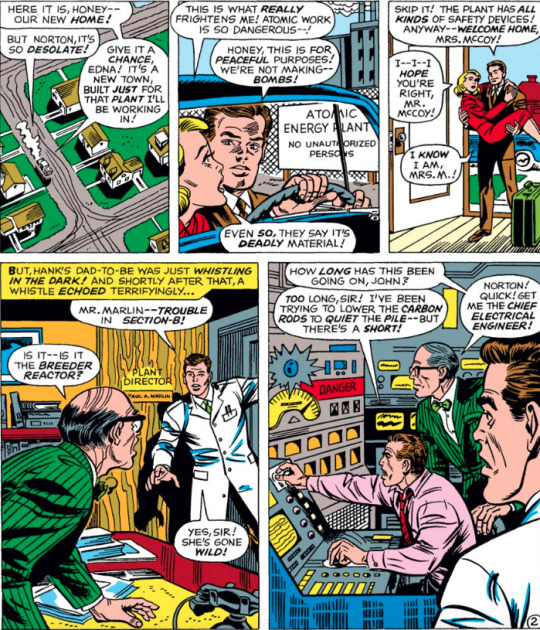
But eh. We move.
As to the second part of your question

. . . Ooohhhhh boy.
Um.
There's a lot? And I hate to bring it all back to 9/11 and the War on Terror, but it's kind of all about 9/11 and the War on Terror?
Media about terrorism, security, threats to mankind, all looked very different pre-September 11th, 2001. Go back and watch Star Trek: Deep Space Nine, and see how Kira Nerys, a character who is explicitly called a terrorist in dialogue, is treated for her actions. She's positioned more as a World War II resistance fighter than anything else. If that show were made now, she would be an intensely different character, because the American cultural and media consciousness has never recovered from that day.
If you want to read more about this, there's quite a lot of academic discourse on how this has all changed. Here's a decent start.
But specifically Hank? Well, the X-Men have had their own 9/11. Multiple times. The Genoshan genocide, as depicted in New X-Men #116, actually just a few months before 9/11. It's entirely possible that this entire storyline might not have been made if it had been written after.


The Xavier Institute bus bombing.
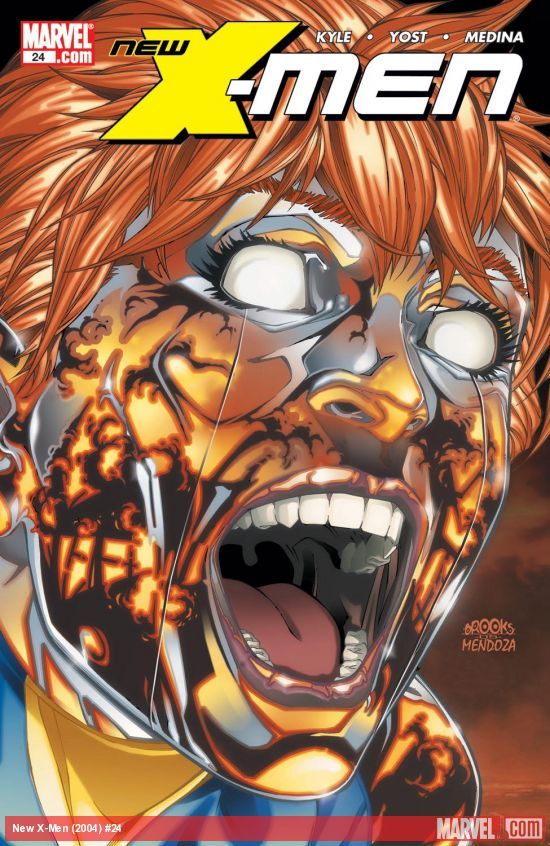
The Decimation.
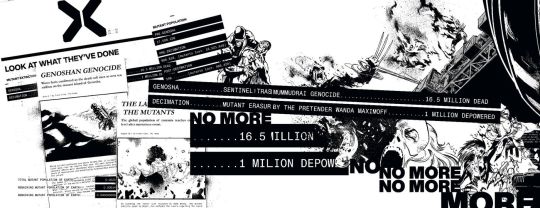
The X-Men became a beleaguered minority, besieged on all sides, reduced to the island of Utopia, just 198 mutants and falling. Cyclops explicitly became far more ruthless, willing to ally with former adversaries and use kill tactics to get the job done, and you could see his portrayal, the infamous #Cyclops Was Right movement, gaining a lot of steam during this era. People really like this Cyclops.
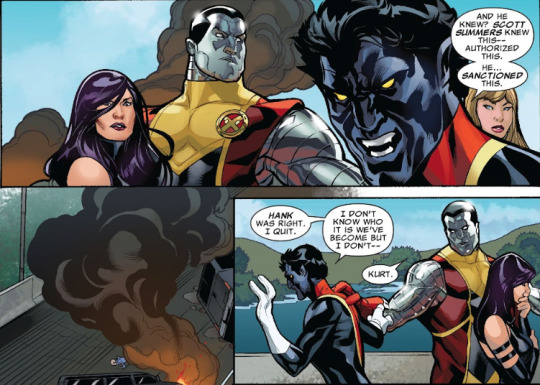


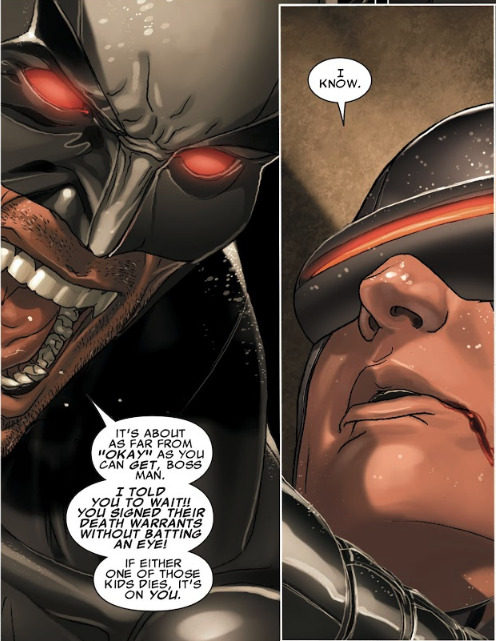
And where's Hank in this? Well.

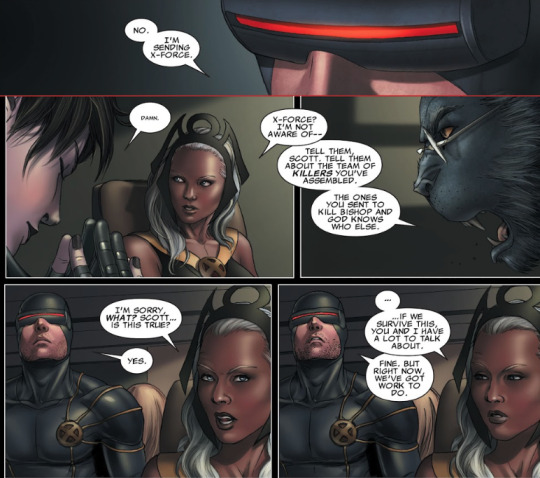
He's the moral counterpoint.
People don't like to acknowledge this, and I feel like there might be a degree of cultural difference going on here, but Hank is correct. I feel like it's not even controversial to say that kill teams are bad. Right?
But people hate Hank for this. They think he's a whiny little bitch who won't and can't help, who runs out on his people, who prioritises his morals over being there for the X-Men. People legitimately think this of him.
Hank is the left wing, conscientious objector and anti-war viewpoint. So, naturally, there's a tendency to look upon him as a whiny little bitch. Just look at how shows like 24 contextualise that kind of moral viewpoint.
I do feel like the writers of this era wanted people to at least question who was right, between Hank and Scott, but the readers pretty much unanimously fell on Scott's side, because even as Scott started to use morally corrupt tactics . . .


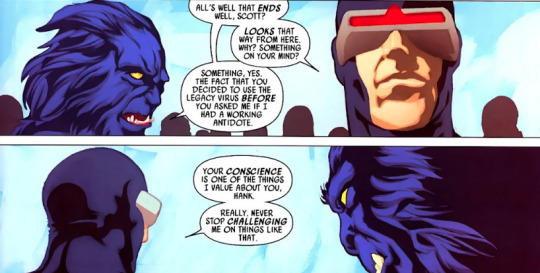
He wasn't doing it for America, bullying small countries out of their oil in the name of democracy. He was doing it for a marginalised minority metaphor, fighting comic book supervillains, which is simpler, easier to root for. He had to use those tactics, you understand. He was fighting monsters! He was fighting the good fight.
Is 00s era X-Men War on Terror propaganda? I don't know. I'm not a political scholar, though I do have a B.A. in History. Interesting how the fandom seems to view this ideological conflict, though.
Anyway, time moves on, and then something starts to creep into Hank's character. Something that inevitably happens to characters like him.
Anti-intellectualism.


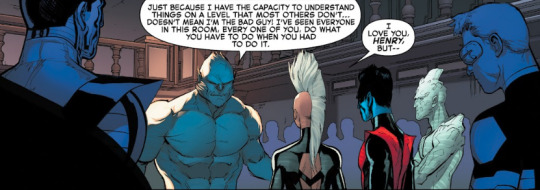
No longer is Hank the moral counterpoint, now he's the intellectual who will lead us all to ruin because he's smarter than he is wise, because he's an idiot with no impulse control.
This characterisation is wholly incorrect and runs contrary to the fact that Hank learned his lesson about unethical experimentation practises in the 70s, in an incident that only harmed him, but whatever. It doesn't matter at this point, does it?
Only people with real world experience, who are level headed, who aren't eggheads, can solve the real problems of the day. People like, uh.
Hmm.
Who does have the solution to the problems of the day?
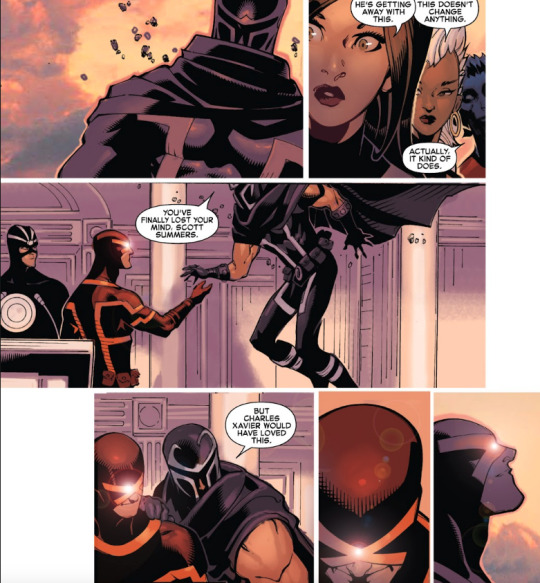
Ah, I see.
We just forgive him for all the heinous shit he did on Utopia, huh?
All that stuff he did, the releasing bioweapons, the kill teams, that was fine, because he did it to the right people.
Well, that's all right, then.
Mmm-hmm. So much better than the egghead. Look at him in the corner, fumbling around, making more problems than he solves. What a motherfucker.
So, yes, let's talk about American anti-intellectualism.
I don't necessarily think Bendis is anti-intellectual. But I do think he spends a lot of time across multiple comics criticising Beast and valorising Cyclops, considering the worst thing Beast had done up until that point, vandalising the space-time continuum to get the O5 back into the present, was done explicitly so Bendis could play with X-Men with only 8 issues of continuity to keep straight.
But anything Cyclops did? All that X-Force stuff? Ehh. Don't worry about it. The only crime we care about is the death of Charles Xavier, for which Scott was possessed, so we can't make a moral judgement.
It's a whole ass topic, and a lot to get into, but I genuinely do think that Hank is one of those characters who especially suffers when written by a writer who doesn't trust vaunted intellectuals, because he's certainly not going to fucking flourish, is he?
And then it all comes full circle.
Ben Percy, enter the ring.

Wolverine, the unequivocal hero of X-Force. Beast, the unequivocal villain of the series. The heart vs. the head. The man of action vs. the intellectual. The rugged thug vs. the fancy pants necessary bastard.
It's the same thing, just more extreme, really. I think X-Force is meant to be a critique of the CIA? If so, it's an extremely bad one, considering it ends on this note.
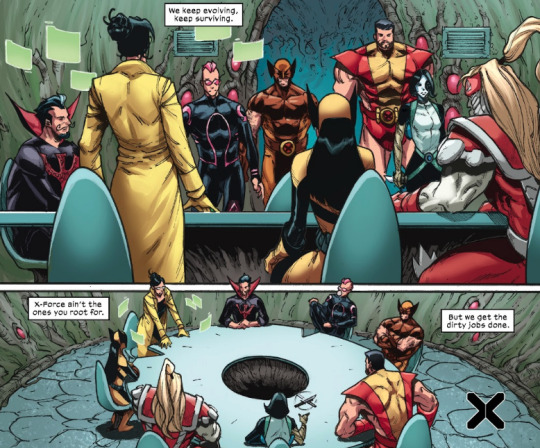
Ah yes. Our heroes. The CIA.
I'm gonna quote the frankly incredible @brw here because they put it way better than I could on this point:
"This is genuinely a larger problem I have with Krakoa, is that rather than explore the culpability and complicity of all the characters involved in not just the creation, but the active maintenance and survival of what is, categorically, an eugenicist, oligarchy ethnostate, we instead act as if Krakoa would have been fine if not for Evil Hank/Evil Moira/Evil Sinister for ruining it all for the rest of us.
Because are Sage or Logan ever properly thought to be bad people for standing by as long as they did? It isn't even that X-Force are the people who do the dirty stuff–it's Hank that does that, and the rest of the character get to keep their hands relatively clean, at least narratively. They're sympathetic, or understandable.
Hank is positioned as this demon in the shadows ready to snatch you up and kill you which is a weird decision to make with what you describe as the CIA.
The CIA isn't evil because evil people are in charge of it, the CIA is evil because it is a fundamentally evil institution based off evil systems! Benjamin, you can't write mutant CIA if your closing statement is how awesome the mutant CIA is, and it's a shame about that one evil blue guy that ruined everything for everyone."
Good thing we got rid of that Beast guy! What a fucker, right? Nasty, gross, intellectual pustule he was, with his oily words and grossness. Look at him, reading books. Sage is fine, though, because she doesn't read books. I mean, she's quantifiably grossly incompetent in this series, but we like her better than Beast, so it's fine.
Beast, from the 2000s era onward, is a very political character. It's just a shame that a lot of comic book writers tend to be grossly ill-informed when it comes to actual politics, capable of only surface level hot takes like CIA bad or kill teams good, actually, because now we've gone from 'Beast is the left wing conscientious objector' to 'Beast is the literal anti-Christ,' and I don't really like what that implies about what we think of the former.
But eh. I'm just a writer.
16 notes
·
View notes
Text
Some thoughts on Picard Season 2 and why it's unpopular.
So I had a bit of an epiphany yesterday. I'm rewatching Picard Season 2 in preparation for a discussion about it with a colleague next week and I was constantly reminded that a lot of fans are very visceral in their dislike of this season.
To be honest, there are parts of it that I don't like. I think the whole Soong/Kore story was a totally unnecessary distraction and was only done, once again to shoehorn in Brent Spiner and the Picard/Data relationship - which I never found compelling in the first place. But that's just me.
However, I realized that Picard Season 2 does something that no other season (or show) of Star Trek does, it centers the entire narrative on humanity. By making the protagonists AND the antagonists humans, there is no subtle (or not so subtle) use of alienation to map contemporary adversaries or conflicts onto the Federation's adversaries. This is important, because, as I have argued in a multitude of research papers, Star Trek is very, very guilty of framing future conflicts through the lens of contemporary adversaries. This was done very explicitly in TOS - both Roddenberry and Coon overtly asked for the Klingons to be modeled on an "Asiatic Communist" trope. Communism was again the enemy in TNG, through the medium of the Borg and "assimilation" and loss of individuality. DS9 has its Cardassian "Nazis"; Voyager and Enterprise the chaotic post-Cold War existential threat of non-state actors and by the time we get to Discovery, the Klingons have been recast as Jihadist extremists.
The fundamental problem with this is that no matter how much Star Trek might talk about the Federation being a "future better us"; by casting recognizable real world adversaries as the Federation's foes, it automatically casts the contemporary US as the Federation (that's just how TV works, especially through the manichean lens of US culture).
So, if you don't want to think too hard about the ways in which the US interacts with the world. If you don't want to think too hard about American exceptionalism and Neo-imperialism and the misuse of force (and capital) without and within the US. If you cloak it all in the surface progressiveness of visible diversity - and I'm not claiming that diversity and representation isn't important, of course it is, but diversity does not equal progressive politics - then you can happily watch Star Trek without ever having to grapple with the uglier parts of the American experience. If we are the Federation, and clearly we must be because the Federation's foes are recognizably our foes, then we are already the galaxy's "good guys"; the Federation is just a future extension of the American now.
Season 2 of Picard blows that all apart. The bad guys are the Confederation and, by going back to the 21st century and exposing the roots of the Confederation in all the ugly, racist, greedy, unequal, venal, corrupt layers of 21st century America, the Confederation is a direct consequence of that present (our present) being allowed to play out into the future. We are the enemy in the 21st century and we become the enemy in the 24th century.
And the show pulls absolutely no punches. We get ICE brutalizing detainees and explicit discussions of people being disappeared because they are dehumanized as "non-people". Homeless encampments and immigrant clinics amid glittering towers and sumptuous parties. We get quips about the ridiculousness of pledging allegiance to a flag (thank you Ríos) and monologues about exchanging white hoods for suits (thank you Guinan). Some of the despair is directed to the behaviors of everyone on the planet - climate change - but the vast majority of the political commentary is explicitly about the contemporary US.
Not only that but it's done by a diverse cast that speaks Spanish, and is brown and queer and female and empowered (thank you Queen Agnes) and where the only white men are aging and feeble.
It is (the wandering Soong/Kore storyline notwithstanding) fucking brilliant television and it's the first time that Star Trek is ever explicitly - textually AND subtextually - progressive. There is no ability for the audience to elide the message by hiding in the fiction that we are the Federation and THEY are the bad guys (the Klingons, the Borg, the Romulans, the Breen, the Cardassians).
So no, let's get rid of the bullshit that people don't like Picard Season 2 because of "the writing", the writers room for Seasons 2 and 3 is almost identical (Matalas, Appel, Monfette, Maggs and Okomura) and the writing for both seasons was taking place almost at the same time.
Whether it's subconscious or not, the disproportionate degree of hate leveled at Season 2 (often by the same fans that love season 3 for it's "great writing" and overt nostalgia) exists because the storytelling in Season 2 leaves fans no place to hide. Because for the first time Star Trek really dives into the core of science fiction, which, as many, many sci-fi writers have explained (Margaret Atwood most recently), is not to predict the future but to critique the present.
I may come back and edit or extend this later, but right now I'm going to leave it as is and post.
Edited to clarify that you can hate Season 2 for any reason you want to, personal taste is just that, personal - but the (for the first time) explicit social commentary cannot be divorced from the unusual levels of vitriol hurled at this season by a substantial group of very vocal fans.
48 notes
·
View notes
Text
The Shy Politics of Fly Me to the Moon
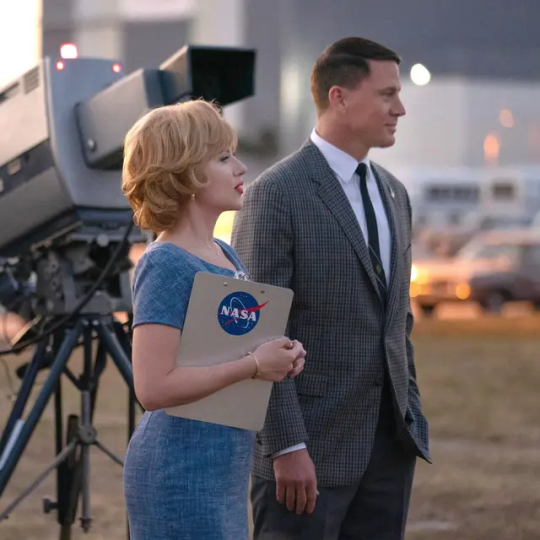
By Joon Hwang
Scarlett Johansson and Channing Tatum’s Fly Me to the Moon, a revolutionary film on the popular conspiracy theory of the “fake” Apollo moon landing, is like butter on movie theater popcorn: subtle in taste, just like the film’s political commentary.
Johansson’s character Kelly fixes her hair, confidently saunters from the elevator, and brightly interrupts a company’s important product meeting. Leaning close to powerful executives with a lipstick adorned mouth, she feigns seduction to conduct her elaborate scam on misogynistic men. What I thought as this scene appeared was “Ah, feminism.”
In so many contemporary films, critics have noted the modernization of feminist displays that have become a part of modern Western culture. And yet, the way that Johansson portrayed her character had more depth of political messaging than the average “feminist” show. The way that the music combined with Johansson’s sarcastic lip tilt and cunning gaze portrayed the misogyny found in the late ‘60s. The additional ways that she moved about the film grappling political figures with her con-woman talents as male characters stood awestruck lent an ironic tone to obviously sexist times.
In another political take, the film’s specific dialogue and shots demonstrated an interesting take on patriotism. The initial scene in the movie, with static-filled vintage shots of the Vietnam War and the tragic outcome of events surrounding the Space Race led elements of patriotism to create intent within the characters in the movie. And yet, the movie’s portrayal of the federal government as a deceptive character through Woody Harrelson’s Moe implicitly conveyed anti-patriotic sentiment because of his evil nature.
These messages were unsettling in their conveyance because of their supple properties. The messages of patriotism to some could be more prominent, leading to effects of movies such as Tom Cruise’s Top Gun: Maverick, which according to one Newsweek article had “ . . . Other prominent viewers who are also seemingly eager to celebrate America.” Additionally, Johansson’s character could be interpreted not as a feminist message, but one of sexism that continues to portray women as seductresses. However, from my understanding of the film, the film could prove to be a film that stands in solidarity with the colonized through its veiled criticism of the federal government and also for women through its proud portrayal of Johansson’s beautiful character.
Now, there are those that choose to disrespect the film’s mastery of delicate representation. It is exactly these properties that allow for films such as Minari to gain such wide recognition. Minari, after all, was a film about a Korean-American family moving to the Midwest to build a farm, but had the deep messages of remaining connected to your culture in the face of discrimination and lack of community. If only people took time to sit down and interpret the meanings behind the various shots of the film, they would begin to see that the film’s message is consistent throughout: be cautious of what you believe about history, and remember what was happening in the past in the contemporary tumultuous times.
#fly me to the moon#channing tatum#scarlett johansson#movie review#moon landing#conspiracy theories#romeo and juliet#feminism#nasa#politics#women
6 notes
·
View notes
Text
Jason Wilson at The Guardian:
A Guardian investigation has identified former University of California, Irvine (UCI) lecturer Jonathan Keeperman as the man behind the prominent “new right” publishing house Passage Press and the influential Twitter persona Lomez.
The identification is based on company and property records, source interviews and open-source online materials.
The reporting has revealed that Keeperman’s current status as a key player and influential tastemaker in a burgeoning proto-fascist movement came after years of involvement in far-right internet forums.
Much of that journey coincided with his time at one of the country’s most well-regarded writing programs: Keeperman first came to UCI as a master of fine arts (MFA) student, and was also a lecturer in the English department from 2013 to 2022, according to public records.
The emergence of Passage Press and other such publishers has been a key part of the development of a swathe of the current American far right, which is seeking to capture US institutions – or develop far-right equivalents – as part of a political and cultural war against what it sees as the dominance of a liberal “regime” in America.
In a June 2023 podcast interview, Keeperman characterized Passage Press and its literary prize as part of this effort to “build out alternative infrastructure, alternative institutions”.
It is a fight wholeheartedly embraced by Donald Trump and his supporters in the Republican party, especially in their railing against “the deep state” and promises of retribution should Trump win the 2024 presidential election.
The Guardian repeatedly contacted Keeperman requesting comment on this reporting, at a personal Gmail address and a Passage Press address, and left a voicemail message at a telephone number that data brokers listed as belonging to Keeperman, but which carried a message identifying it as belonging to a member of his household.
[...]
Scary ideas – and wanting to be recognized
Passage Press books include a Tucker Carlson-blurbed anthology of writings by “human biodiversity” influencer Steve Sailer; a similar retrospective from “neo-reactionary” guru Curtis Yarvin; and a print version of the biannual Man’s World.
Like many other far-right publishers, Passage’s list is bolstered by reprints of out-of-print or public-domain books by historical fascist and reactionary writers. These include books by radical German nationalist and militarist Ernst Jünger; Peter Kemp, who fought as a volunteer in Franco’s army during the Spanish civil war; and two counter-revolutionary Russian aristocrats, White Russian general Pyotr Wrangel and Prince Serge Obolensky.
[...]
Passage Press differs from many others in its niche in offering new work by the contemporary far-right’s intellectual celebrities, and in curating in-person events and a far-right literary award.
The publisher also produces high-end limited editions of selected titles. The “patrician edition” of Noticing, a book by Sailer, for example, is “bound in genuine leather, gold-foil stamping” and “Smyth-sewn book block”, according to the website.
Though lavishly produced, the “patrician” offerings appear to have generated significant income for Passage. At the time of reporting, Passage had sold out its limited run of 500 patrician editions of Noticing at $395 apiece, according to the website. This equates to some $195,000 in revenue. An earlier patrician edition of winning entries in the 2021 Passage prize sold 250 editions at $400 apiece, according to the website, representing another $100,000 in revenue.
The publication of Noticing – also available as a $29.95 paperback – was spun out into a series of in-person events in Austin, Los Angeles, Miami and New York City, held in March, April and May.
The Guardian reveals that the identity of far-right X account Lomez belongs to UCLA lecturer Jonathan Keeperman.
#Jonathan Keeperman#Lomez#University of California#UC Irvine#Passage Press#Steve Sailer#White Nationalism#Right Wing Extremism
9 notes
·
View notes
Text
Countries - North America
I currently working on denominations in Califinity, mainly the two biggest ones. However, I hit a snail due to just trying to think up names for it. Like, GRR Martin said he doesn't bother with it for Westeros' names like The North and King Landing, but I am obsessed with namings. If the name doesn't have meaning, or doesn't looks right, I gonna fucking throw myself off a bridge.
Anyways, right now I focusing on North America states because there are a lot more countries than ours today. And I including Central America and the Caribbeans, because it's still part of North America. I will also talk about UNAC, which is a supernational union similar to today EU (EU was already federalized in bhna contemporary) and superseded NAFTA.
United States of Fredoia
I already talked about Fredoia briefly on my last post, only that it superseded the USA. Fredoia inherited the majority of USA lands (there were time they didn't, thanks to Neo-Confedercy). They did lose many lands due to many Native tribes declaring independence (I will elaborate that later).
Like USA before, Fredoia kept it capital city where Washington, DC was, and like Washington state, its name is change (maybe Unionpolis, very original lol). It incorporated Arlington Country and Alexandra City, giving DC a total land area of 270 km². It population should be around 3 million. It administration level will be called a metropolis-state level: it status is equal along with other states (they are represented at congress), but it functions more as a city.
New York City is also a metropolis-state, incorporating counties and cities in its surroundings, including Hudson Country, NJ(yep, Jersey City included). However, it lost being the biggest in the US (being now 18 mil), Metropolis of Los Angeles is bigger, far bigger (24 mil). Also, they rebuilt Penn Station, now called Empire State Central Station.
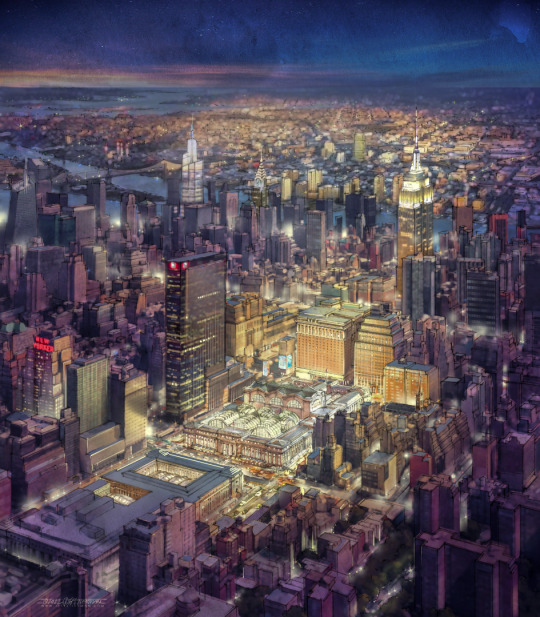



Also, voting systems and constituents' representation are different. It is a proportional representation by parties, meaning Fredoia has a multi-party system. The head of state and head of government is separated, and its government structure is a parliamentary republic like Germany.
Thanks due to quirks, immigration, civil wars, geographical barriers, and the fact that this takes place hundreds of years later, Western and Eastern Fredoia have very different cultures compared to today. How people differentiate West and East is by geographic barriers like how we do so with Mississippi River. The Rocky Mountains Range helped differentiate the two regions.
For one, Latines are now the majority in California, Arizona, New Mexico, Nevada, and other Western states (maybe not Oregon nor Washington). There are already articles that projected this will happen. What is unique due to the mixture of Latine and Anglo culture, especially the language, created a new ethnicity called Californians (Kalifornán written as gender neutral). They even developed a unique language called Kalifornán in its native language (Kalidán if you read my other post for Dune). It's a mixture of Spanish and English, mainly that Spanish superceded English phonetics and any words that were originally French. However, many English words still remain, words like ín (and), islán (island), lán (land), ríf (river), and such. Also, some letters change due to pronunciations, like Spanish J is now Hr (Juan will spell Hruan), Spanish and English Ch, along with English J is now Ç. The C that pronunced similar to the word city is now S (reason why Frinsica has an S now). I gonna write a post for this.
One key factor for Californians' ethnicity is that the majority are Califinitans. The majority of Fredoia Califinitans are located beyond the Rocky Mountains, with exceptional of Upland South-
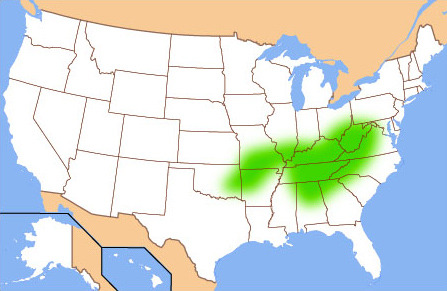
-due to The Great Blooming and the Neo War. Almost all of those in Upland are what I called Deitist: believing that Califia is someway a deity.
There is also a new ethnicity/race called Biras (Birace?Biase?). They are the English version of Mestizos. I was thinking that since interracial is more acceptable, and therefore more biracial children, that will be far more biracial in the future. I will think they will be the majority (maybe 1/3?), though they will likely have different groups depending on their background. Sasha Waybright is likely a Biras, however, this will depend on if her one or both her parents are from the Eastern. She probably will view herself as a Mestiza since she will be a Kalifornana.
I also want to create a different post that focuses only on the State of California.
Native American States
After the Second Civil War, many Native American tribes declared independence. How many, I don't know, and to be honest, I don't think it is more than 10. Right now, I gonna create ones from the US since I more familiar with it. There likely are independent First Nation states in Canada, and there definitely is a Mayan state in the Yucatán Peninsula (and maybe whatever the Zapatistas are controlling now).
Kingdom of Hawaii
This was already a no-brainer as there is already a sovereign movement by Native Hawaiians. Honestly, it is rather they would have a monarchy or republic is the question.
This part is going a bit controversial, but once the USA government kinda just collapsed, there was a lot of chaos in the islands. There was a massive exodus, many who were non-native, who went back to the states. However, there was also an expulsion of other non-native, even those were not white, by Native Hawaiians; there were conflicts between two groups who wanted to either remain in the union or become independent, which led into this. Hawaiia also has a right of return for diaspora Hawaiian like many other countries do.
The capital is still Honolulu. They are a member of UNAC. When Amphibia was transported at the Pacific, Hawaii claimed some islands in its southern water that were uninhibited. There are political tension between the and the Kingdom of Newtopia due to this, and also the fucking megafaunas they traveled to the islands.
Navajo-Hopi Nation
Again, a no-brainer, however, the thing that was a bit shockingto me was that there is another tribe reservation inside Navajo. I was wondering why there was a hole in Navajo until I look at a proper map and saw Hopi in it lol
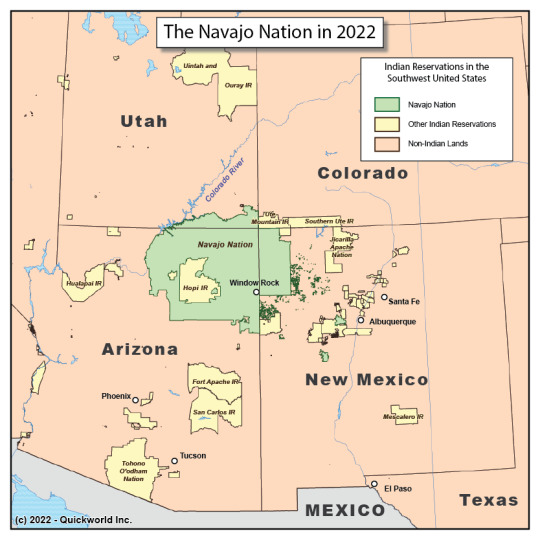
(Other reservations in the East likely will be incorporated simply because Navajo-Hopi ask them "hey you wanna join us?")
Honestly, it likely they had the most peaceful transition: it isolated thanks to being in a desert (and behind the Rocky Mountains), there is not that many non-native in it to begin with, there are other issue happening for the USA government to worry about, and the most hilarious reason, is that they never publicly declared independence. They decided to ignore DC and acted like an independent country for either half to nearly a century.
I don't know if Navajo-Hopi should be a binational state or not. Binations don't usually last that long, and there are other non Navajo-Hopis that live in the nation. The capital city is Jeddito, an actual place in Navajo that is inside Hopi. Population in the nation should be around 10-15 mil. NH is part of UNEC.
Republic of Lakotah
Likely the biggest Native country if Alaska isn't independent. It is actually based on a proposal state for Lakota.
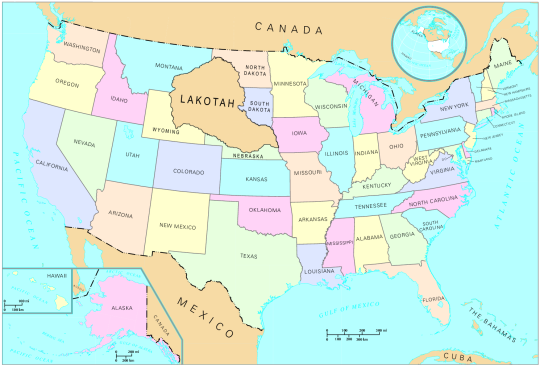
It capital and largest city is Omaha (will go by a different name). The city is right on the tip, and it is the most important city as it is connected with the Mississippi River.
Even though Lakotah is meant for Lakota, there are other Native tribes who emigrated to it. There is likely ethnic tension between Lakota and the other non-Lakotas, but I don't think it won't be as awful as other places.
Of all the native states, Lakotah was the most violent; the country situated in five Republican states. The likely reason how they managed to gain independence is due other tribes from the surrounding coming over to help (similar to Bleeding Kansas). And anti-quirks were not as pivotal or heated compared to Whites (especially Republicans), so while Whites were fighting among themselves about quirks, quirks and non-quirks Native were teaming up.
There is a unique architecture in Lakotah, buildings which are called Tipi. Tipi are small, arcological buildings that are meant to house either 2,000 to 10,000 people. They primarily house people without hurting the environment. They are small, 1/4 to the size of a square kilometer. What is unique is that it is a commune, allowing people to share and control resources via democratically. It's the only place on Earth where they have true communism. How Tipi interspersed the lands is unique because I got the idea from Not Just Bike on his video of Switzerland. Lakotah is a sprawling country, where half the population lived in 5 major cities, and the other half lived in Tipi in said city's region or somewhere else. Instead of having sprawling suburban like the USA and Canada, Lakotah is sprawled by Tipi.
Lakotah land area is 200,00 km², with a population of 55 mil., and Omaha population is 10 mil.
It is also a member of UNAC
Country around Oklahoma
I know for a fact that tribes in Oklahoma declared independence too, the only issue is I don't know a name for it. There are multiple ethnicities in Oklahoma, and there likely need to have a lingua franca.

I still gonna call it Oklahoma. Oklahoma City is the capital, with a population of around 1-2 mil. The country itself is 15-20 mil. Oklahoma is a member in UNAC.
Maya Republic
Mayas initiated their country during the Dark Age/Vigilant Era, like the four other countries I mentioned. And when i said Maya, I mean Indigenous Mayas , not Mestizos who don't identify as such. The Maya Republic controls Chiapas, Yucatán Peninsula, Belize, and Northern Guatemala.
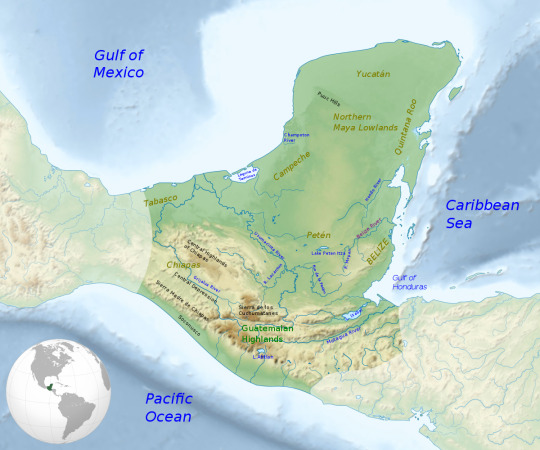
I don't know where the capital city will be. Either Mérida in Yucantán, Jovel, or Tuxtla Gutiérrez. Population is likely at 30 million. Maya is a member in UNAC.
The majority of Mayas are likely Califinitans, though I don't know if they will be deitists or nondeitists.
UNAC
UNAC, or United North America Confederacy, is what I said before: a supernational union similar to EU. And I mean similar in many ways.
Border between UNAC members are open, there is a singular currency (called Uneso), no visa required for nationals when working in different countries, UNAC Nationals allowed to vote and stand in office in local government, no restrictions in trading, etc. There is not much standard when it comes to infrastructure. However, they do have major projects for UNAC to feel more connected. Almost all railways in mainland North America are electrified (25kv/50hz), all have standard gauge, have uniformed signals, and are connected. It's theoretically possible to take an hsr (450 kph) line or two from New York City to Panama City. But a more preferrable opition is a Maglev (750 kph) line, which goes directly to either city.
The capital city is at Rio Grande mouth, called Rio Grande City. It picked for a symbolic reason: Rio Grande separated Latin and Anglo culture, the treatment of Mexican, and proxy Latines, by the former USA, and picking the capital on the mouth bonds the two cultures together.
The city population is around 20-25 million. Some interesting things i think up is that there is a lot of bodies of water in Rio Grande City, like what it is today-

-so the city kinda looks like Venice. There are artificial islands similar to I-Island off the coast, though they are much smaller, likely at average of 10-50 km². There is a pro-hero academy meant for UNAC national students. There is also a Triwizard-like tournament for Pro-heros academies, and it is always hailed in the city.
I think the UNAC government is similar to the EU along with Switzerland. It has two legislative, one voted by population, another by it state government. There is also a commission committee that handed making laws, but I too lazy to look it up. UNAC Senate, the one elected by population, has a degressive proportionality when giving each state senator. Let's be honest, Fredoia will fucking out vote every countries due to having the highest population. Mexico comes in second by population, with maybe a population of either 250-300 mil, but even then, adding all the other countries, they still won't outnumbered Fredoia, even if Fredoia did lost many states before. So, small countries (maybe less of 10 mil?) automatically have 5 senators, and the Senate will apportioned senators accordingly. Likely Fredoia only filled 1/3 of the Senate. The executive branch is a council of each countries head of state and government, like the EU.
Amphibia and the Boiling Isles
Amphibia can't be a member due to it government and representation. Even though Amphibians could elect local leaders, non-Newts can't vote for the supreme legislative body, and the kingdom is a semi-constitution monarchy. Like, UNAC is okay with Hawaii being a monarchy (if Hawaiians choose it) as it government is very much a constitution monarchy. The monarch has restricted power, similar to the British monarch. Andrias has far more privileges that will make UNAC very uncomfortable. There is some trade right between the two, and the Amphibians do have an easier time getting a visa (this I imagine how Hop Pop and two kids manage to enter California).
For BI, it is complicated. BI is situated in the middle of the Atlantic, and therefore does not feel connected to North America. Actually, there's likely tension between UNAC and BI (and likely other countries, especially EU and West Africa countries). Many of the islands block shipping lanes, so conflicts between BI and other countries are likely to happen. Doesn't help they are also do magic and far more non-humanoid like.
Not only that, but BIS are very isolationist. Rarely do they connect with the outside world. Even when Belos becomes emperor, it didn't really change its isolational policy other than scaring other countries because now they are united and far more powerful.
There's nothing else much to talk about. In the EU, they have a similar international pro-hero academy for EU national students to learn together -this is the premise for snk/bnha fic, where 104th class are a pro-hero class (Eren was a non-quirk until his father gifted him one, and not only Ymir (freckles) is from a famous and loving pro-hero parents, but she also in an arranged marriage with Historia, her childhood best friend).
Anyways, that's it.
#bnha#mha#boku no hero academia#my hero academia#bnha fanfic#mha fanfic#bnha fanfiction#mha fanfiction#fanon#bnha fanon#the owl house#amphibia#dune#dune part two#sasha waybright#ymir#ymir freckles#historia reiss#yumihisu#eren yeager#aot#attack on titan#bnha au#native american#maya#Hawaii#worldbuilding
6 notes
·
View notes
Text
The previous part of this series, Part 2, is available here.
In the world of internal Democratic Party politics, the chosen party of the professional-managerial class, fighting for a role in the party hierarchy is done by resume-padding. You have to have worked the correct jobs under the right managers with subsequent letters of recommendation from your patrons, showing both that you care but your primary commitment is to the job itself, not to the cause you were purportedly fighting for in that position. In that sense, Allard Lowenstein fits the bill as a typical upwardly mobile member of the party in the same way Pete Buttigieg does today. If America knows Lowenstein at all, it's from his role in the popular PBS documentary series on the civil rights movement Eyes on the Prize, especially episode 5. The emotional climax of the episode comes over the party machinations to keep the alternative slate of black voters from being seated at the 1964 Democratic convention, which LBJ, Hubert Humphrey, and his protege Walter Mondale succeeded in because of their superior knowledge of debate club tactics. A series of copyright claims by rightsholders for whom licenses had expired kept this show off the air in the 90s, but early filesharing advocates got to work promoting the show across the internet. After all, if they were trying to ban it, it must be important. The clip here is from that episode.
Lowenstein got his law degree at Yale, did his stint in the military like an honorable American, and then got a job from Eleanor Roosevelt directly, always the most powerful player in the party from her husband's death to 1960. However, Lowenstein also cared to an extent. He wanted the black people of the American south to have a chance to vote, based to a large extent on what he witnessed on a fact-finding tour of Namibia, then an internal colony of Apartheid South Africa. His passion was such that he was a major player in the movement to prevent LBJ from being renominated in 1968, recruiting Eugene McCarthy to run against him. This was because they were both politics nerds in the West Wing sense. Young guns, they believed they knew better than the Democratic machine politicians what voters wanted. They knew the people wanted an anti-war candidate who satisfied liberal pieties and who thumbed his nose at the old hierarchies. The result was three unsuccessful campaigns for presidential nomination and Lowenstein himself becoming a one-term congressman. As Gus Tyler, president of the International Ladies' Garment Workers Union (himself a young rebel against an old guard at one point, now an old man leading younger women) said, Lowenstein was leading politics "away from economics to ethics and aesthetics, to morality and culture", and ultimately "to the Republican Wolves".
The problem here wasn't that Lowenstein cared too much, as most of his contemporaries wrote. Rather, he'd performed like a racer trying to slipstream/draft who had spun out of control. This was because of Lowenstein's background and training. As the consummate liberal striver, he'd managed to become president of the National Student Association in 1951 (note this in particular for future posts). This was a union of students' unions, which was basically the debate club to end all debate clubs because that's all student unions are. Even today, but especially so in the 40s and 50s, the only reason to get involved in student politics was because it was a training ground for how parliaments and congresses work. All they do is argue over arcane resolutions on mundane subject matter, until one manages to land a blow strong enough to gain a majority in favour. It's a weirdo politics junkie's dream.
Lowenstein brought that energy to organizing black people in the American South. Even before his role in organizing 1964's Freedom Summer in Mississippi, the project for which Chaney, Goodman, and Schwerner were murdered, he was already getting on the nerves of more radical black people. James Forman, right of MLK in the pic below, ended up on the wrong side of Lowenstein at the 1956 NSA convention. Lowenstein didn't want passage of a more progressive civil rights platform than the one the Democratic Party had adopted. At one point, he literally shoved a black man to the microphone to speak on his behalf, according to Forman. He won, of course, because he knew his debate club tactics better.
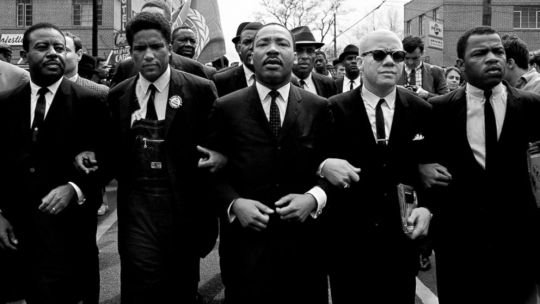
7 years later, Lowenstein and Forman butted heads over the Student Nonviolent Coordinating Committee's work in Mississippi and Alabama. Forman notes that he arrived almost unannounced, and yet many of the white volunteers suddenly claimed that they were under his orders to do what they were doing, including going to towns that were centres of white violence and had no organizing done. As a Yale alumni, Lowenstein probably had links to major white supremacist orgs to protect these people given that Yale was the university of choice for white southerners in the Ivy Leagues. On the other hand, Lowenstein's line was against black radical politics and towards conciliation. Forman found that Lowenstein often worked hand-in-hand with Bayard Rustin, James Farmer, and John Lewis (far right in the pic above), and were close to Norman Thomas and Michael Harrington's Socialist Party (eventually Democratic Socialists of America), bankrolled by Walter Reuther of the United Automobile Workers union. He was particularly piqued when they went to the Dominican Republic as supposedly independent observers and certified the election of the pro-American candidate not long after an American invasion, despite the well-known popularity of his opponent Juan Bosch.
This rankled Forman because the struggle in America for the civil rights of black people was part and parcel of the decolonization struggle abroad, or so he thought. To have America going around and imposing governments on nations through its military industrial complex and arcane intelligence apparatus reeked of what South Africa was doing in Namibia. After all, there was a reason the SNCC had adopted the phrase "one man, one vote" for its 1964 Freedom Summer campaign: it had been a slogan of the 1958 All African Peoples' Conference, the first meeting of black revolutionaries from all of Africa in history.
This conference was convened by the newly independent Ghana, the eighth independent nation in Africa and the first of a long wave which gained independence between 1958 and 1994. The resounding waves of this action were felt in America. Martin Luther King Jr explained in an interview that year "This event will give impetus to oppressed peoples all over the world. I think it will have worldwide implications and repercussions—not only for Asia and Africa, but also for America… At bottom, both segregation in America and colonialism in Africa are based on the same thing—white supremacy and contempt for life". But "Our independence is meaningless unless it is linked up with the total liberation of the African continent", incoming Ghanian prime minister Kwame Nkrumah declared, which is why the All African Peoples' Conference had to be held.
Nkrumah did not learn his debating skills from the NSA. As a student in America in the 30s, he'd given sermons in churches across New York City and Philadelphia, talking always about Africa. Yet it was his experience of American segregation that radicalized him. Being told he was only fit to drink from a spittoon was one of many insults he faced from white Americans. At times, he would buy a subway ticket so that he had a place to sleep. He knew the civil rights struggle was the same as his own, and this followed to the rest of his government. When Ghana became independent, it had virtually no skilled workers because universities in the country barred black students and everybody who had the ability travelled to America to learn. In 1958, Nkrumah spoke at an NAACP dinner in Harlem, telling black American dignitaries that the next step in their fight for civil rights was to send their well educated members back to Ghana, where they would receive a warm welcome and teach their fellow Africans to build a strong, independent nation that could one day bring together a united Africa to rival America.
The opening salvo in this project was the call for all freedom fighters of Africa to send representatives to the AAPC. Nkrumah welcomed them personally. First came Tom Mboya (keep your eyes on this guy) from Kenya, a trade unionist official and future Minister of Justice who one day soon would ensure a member of his tribe, Barack Obama Senior, made his way to America to attend university. Future successful and failed revolutionaries like Joshua Nkomo, George Padmore, Kenneth Kaunda, Hastings Banda, Frantz Fanon, Dr. Felix-Roland Moumie, and Holden Roberto, as well as notable black US Congressman Charles Diggs, were among 300 delegates. Perhaps the most important delegate was accidental. Joseph Kasavubu had initially been invited as the representative from the Congo. However, when the plane to Ghana stopped in Leopoldville/Kinshasa, Belgian authorities had stopped him from getting on, recognizing him from anti-colonial speeches earlier. However, they did allow Patrice Lumumba and two comrades who had impressed the plane's passengers with their rhetoric at a bar to join in. When Nkrumah met Lumumba, he was deeply impressed and called for a photographer to record the moment.
Also among them was Horace Mann Bond as a representative of the African American Institute, a group funded by western mining interests but staffed with academics from major American black universities like Howard and Lincoln. He brought along a reporter named Bob Keith, who was arrested during a closed session of the congress with bugging equipment. Bond was also president of the American Society of African Culture. AMSAC had deep pursestrings, bailing out a number of black groups soon after it was founded, and sponsored Bond as well as CUNY professor John Aubrey Davis, who reported on all the proceedings to former National Student Association president and current AMSAC leader James Theodore Harris Jr, according to AMSAC's archives. A third group that attended the conference was the Congress for Cultural Freedom, who sent white AFL-CIO leader Irving Brown. AFL-CIO in turn sponsored International Ladies' Garment Workers Union member Maida Springer, one of the few black women. One thing that AAI, AMSAC, AFL-CIO, and CCF shared was an explicit commitment to anticommunism in their charters, even as some claimed apoliticality otherwise. CCF sent its future president, South African poet Ezekiel Mphaphele. Some CCF funding came from the Fairfield Foundation, a charitable organization that sent its own observer Patrick Duncan, a white member of the South African Liberal Party. Other funding came from the Ford Foundation, which sent white University of California Santa Cruz professor John A. Marcum on its own. Marcum and Brown helpfully offered to translate ad hoc between French (spoken by Lumumba) and English (spoken by Nkrumah), and the two report an unknown American helping them with all their conversations.
I note these people because they or the organizations that sponsored them were all revealed to be CIA fronts or conduits by the magazine Ramparts in 1967 (Brown's one time boss at the CIA's International Organizations Division, Thomas Braden, wrote a response entitled "I'm glad the CIA is 'immoral'"). Many of them defended themselves by saying they were unaware of where the money was coming from or that they did not know the people they reported to were compromised. As Ramparts was drawing primarily on IRS information that had been leaked as well as corroborating testimony, they did not know the full extent of their integration into the intelligence apparatus. As many of these organizations folded in the 70s and 80s after these revelations their archives were given over to universities for preservation. They were rarely perused, two notable exceptions being by Frances Stonor Saunders and Hugh Wilford in the 90s and 2000s respectively. What they revealed was not wholesale domination or complete innocence, but rather a joy that the CIA was funding them to do what they knew was the right thing combined with strident insistence to the conduits for their funding that they not be forced to do anything that would contradict with their politics. When Farmer, of Forman's Lowenstein faction at CORE and SNCC, went on an AMSAC-sponsored tour of Africa, he criticized Malcolm X's beliefs as "apartheid and… worse", then got into arguments with diplomatic staff for his criticisms of American policies towards South Africa, Portugese Africa, and most of all the Congo. He later claimed that seeing apartheid abroad helped to calcify his opinion the American government. When Brown became harshly critical of Nkrumah, Springer, his subordinate and mentee at AFL-CIO, explained decades later that the 1958 conference gave her "goosebumps" and was more significant than the fall of the Berlin Wall in her opinion.
Evidently, many of these liberals, like the more radical leftists they battled, viewed the American civil rights struggle as an anti-colonial one. So too did the CIA, given the similar manner in which they infiltrated both through the liberals. However, portrayals of the struggle in popular culture like Eyes on the Prize show nothing of the sort. They tend to show a struggle from the streets right into the Democratic Party. This pattern also befits all of the above named associated with the CIA, albeit with the ones less inclined to support whoever the current president was also ending up becoming less powerful. Typically, they emerged in academia rather than politics, ie the other glorified debate club. In contrast, the radicals tended to find themselves sidelined or shot. Forman was an early supporter of the Black Panthers along with his associate at the SNCC Stokely Carmichael, but as the group descended into factional infighting, his former comrade stuffed a pistol in his mouth and threatened to shoot, giving him a nervous breakdown. He went into academia and helped ensure his son, now a Yale Law professor, could do the same. To co-author his autobiography, "The Making of Black Revolutionaries", Forman picked Julian Bond, son of Horace Mann Bond.
‘Irving Brown was never a CIA agent’, said Cord Meyer, the head of the International Organizations Division of the CIA. ‘The very notion is laughable. He was as independent as you could get, and very strong-willed. What the CIA did was to help him finance his major projects when they were crucial to the Western cause. But in his operations he was totally on his own’.
35 notes
·
View notes